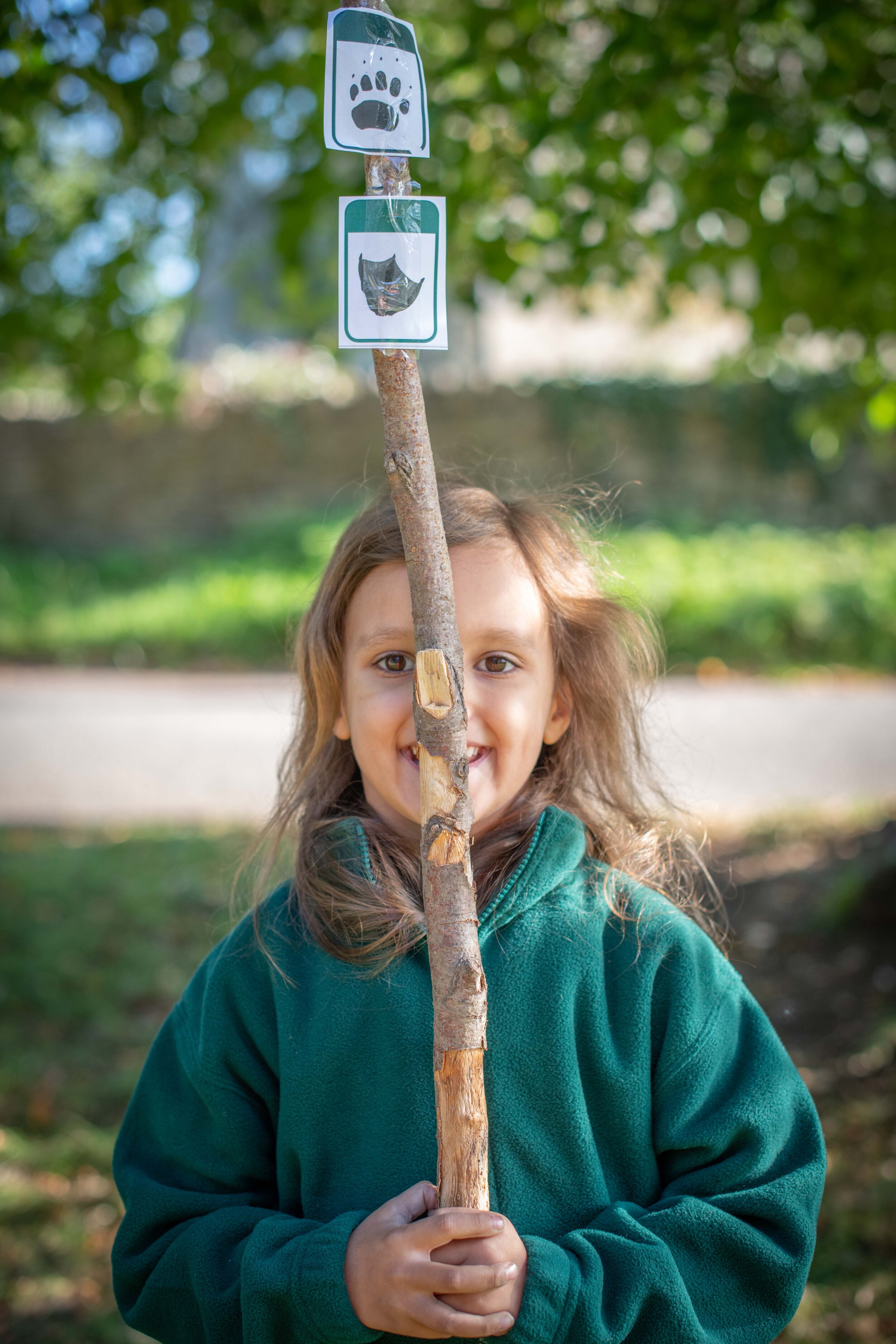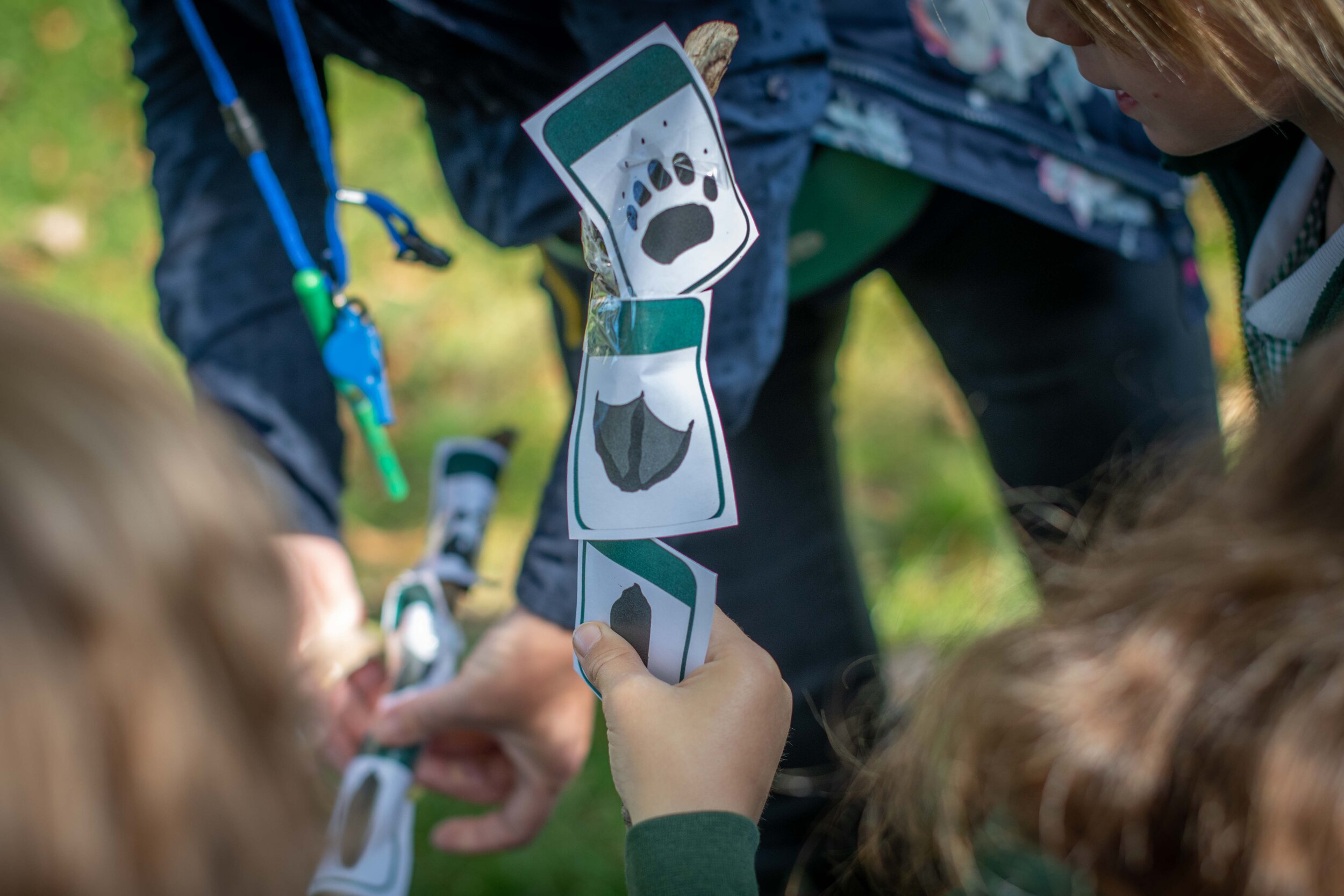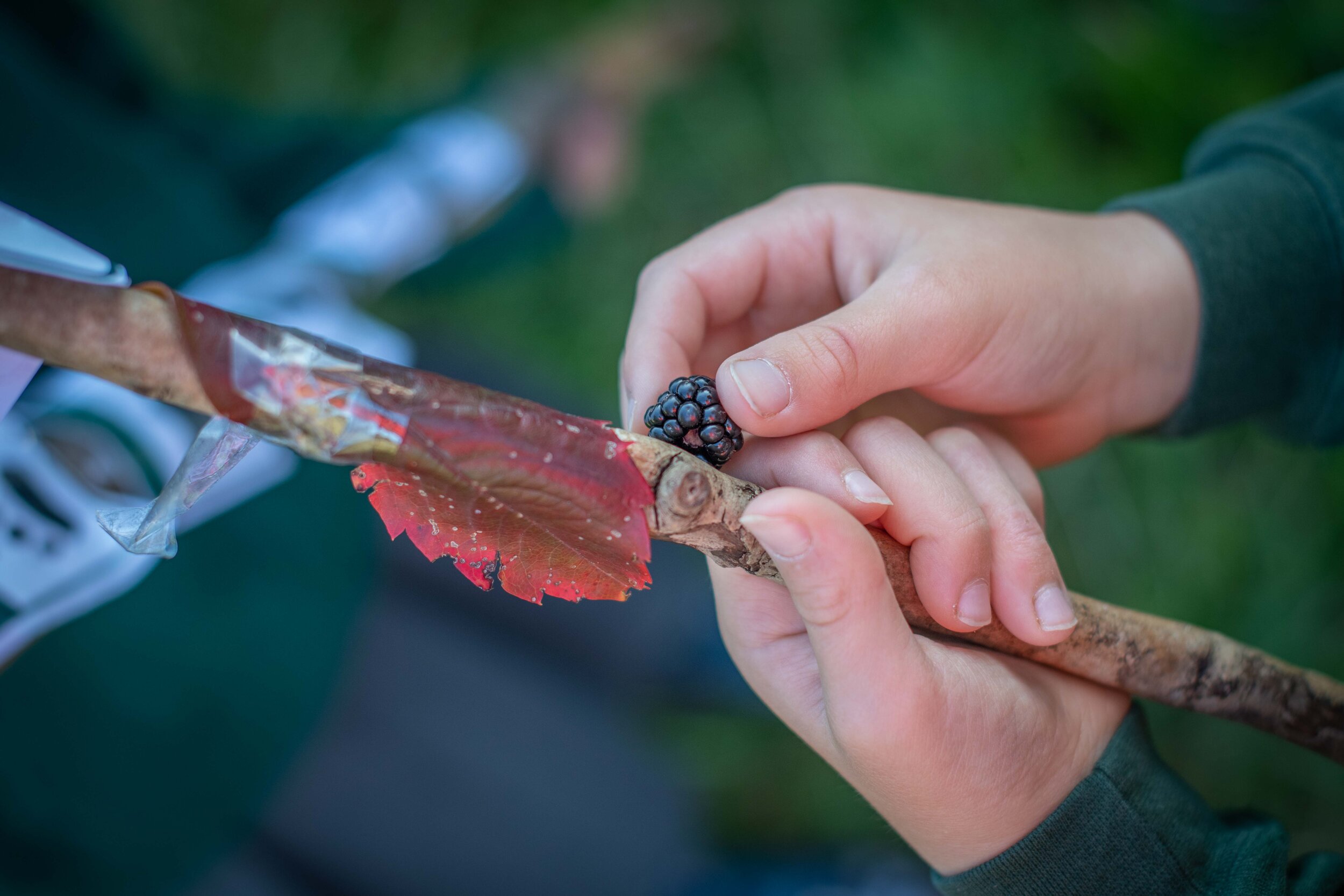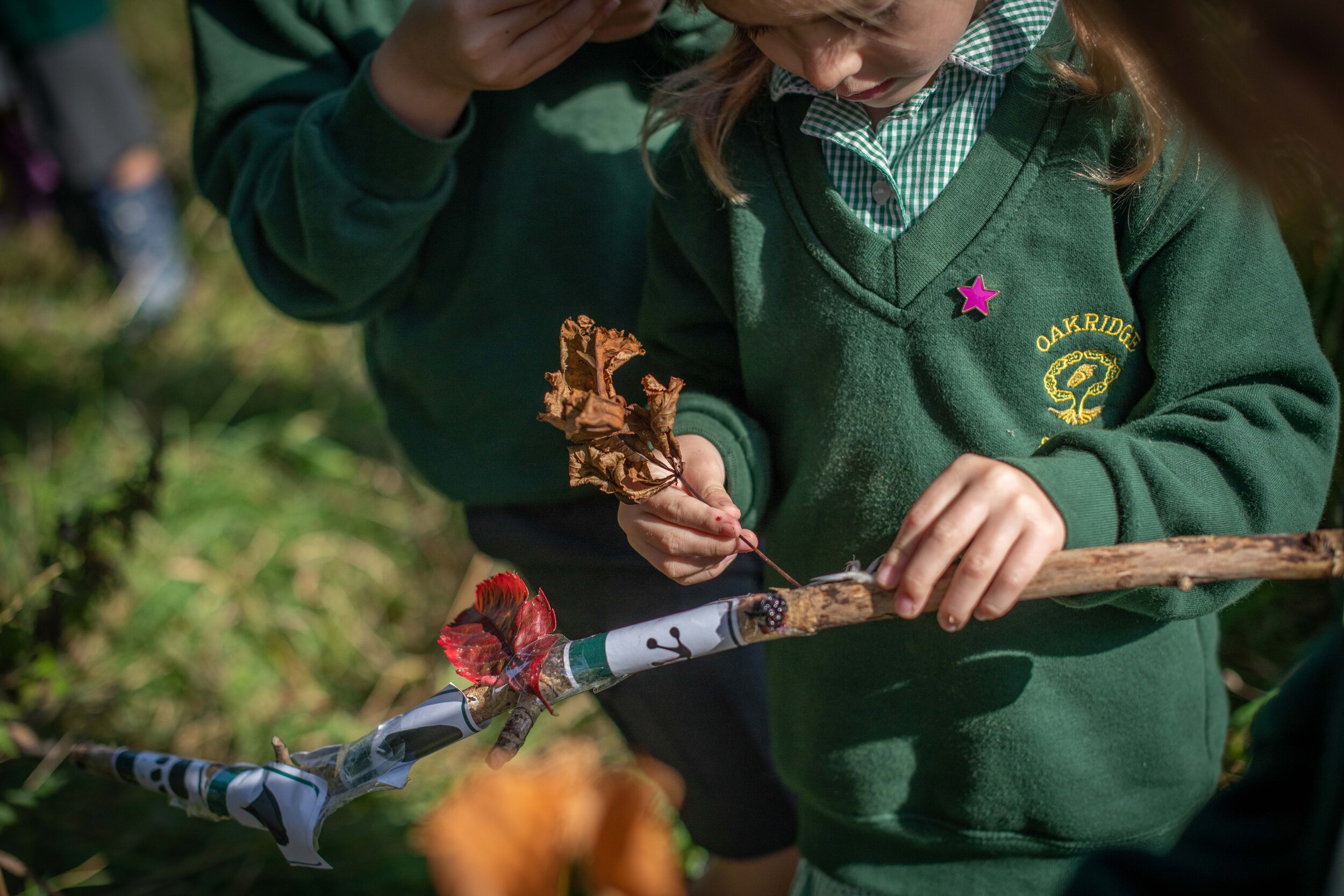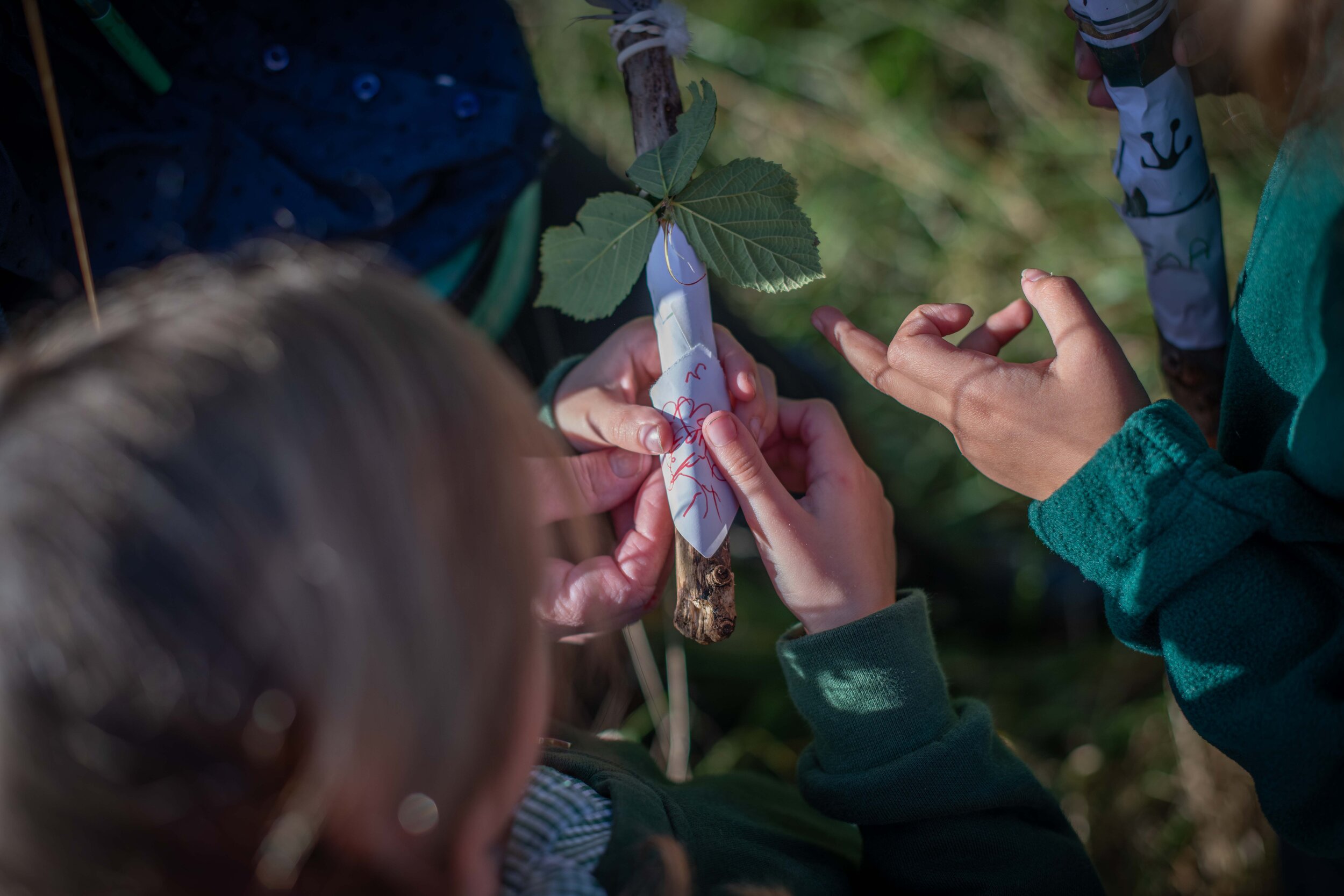Outdoor Learning
Outdoor Learning
“I am very impressed with the allotment project you have successfully launched and how it has become embedded into the curriculum and used widely by the students and their families.”
Outdoor learning is central to the children’s learning at Oakridge. The school is extremely fortunate to be set in such beautiful surroundings. Nature abounds and every opportunity is taken to use the local environment on a daily basis. The teachers at Oakridge are an imaginative and inspiring group of people. They incorporate outdoor learning into almost every aspect of the National Curriculum. They believe that learning from a real life experience, or problem solving exercise, has much more relevance to the children. In turn, what this means, is that the children absorb the information better which in turn gives them a deeper understanding of the subject.
Environmental education forms part of the school’s creative curriculum. Children who have studied in a creative curriculum tend to be free thinking and open to learning new subjects. They go on to become forward-thinking, resilient individuals who aren’t afraid to try new things and adopt a ‘have a go’ attitude. Such qualities are becoming increasingly important in a world of uncertainty. When they leave our care, they will go on in the world as independent equals to everyone that has the good fortune to meet them.
Oakridge School is Gloucestershire’s first Seed Guardian School. It’s an important conservation role that is run in conjunction with The Heritage Seed Library. A wonderful accolade to hold.
-
Increased physical health.
Enhanced mental and spiritual health.
Enhanced sensory and aesthetic awareness.
The ability to assert personal control and increased sensitivity to one's own well-being.
-
In addition to all the statutory subjects within the National Curriculum, the children also enjoy additional environmental workshops on subjects such as worms, soil, composting and seed saving. These extra lessons provide an invaluable extra curricular learning approach.
The Allotment
The allotment is a wonderful and very recent addition to the school. The plot was acquired in September 2018 and lies on the community allotment site in the centre of the village. To reach the allotment, the children take a short walk through the village, which in itself is a lovely opportunity for some fresh air and exercise.
The allotment provides a wonderful platform for cross curricular learning. The school uses it on a weekly basis for nearly every subject within the National Curriculum. It is a unique place for the children to enjoy lessons.
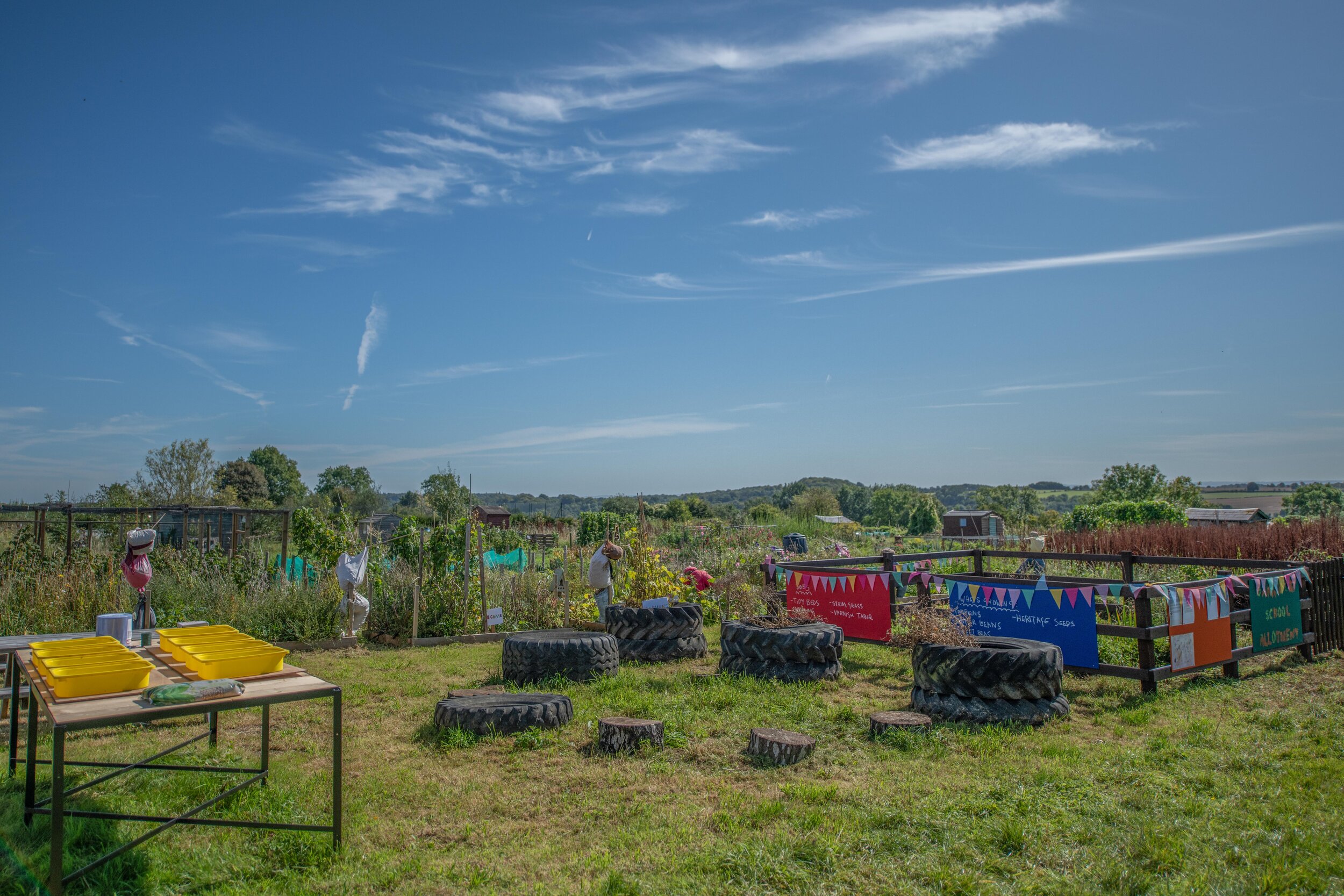
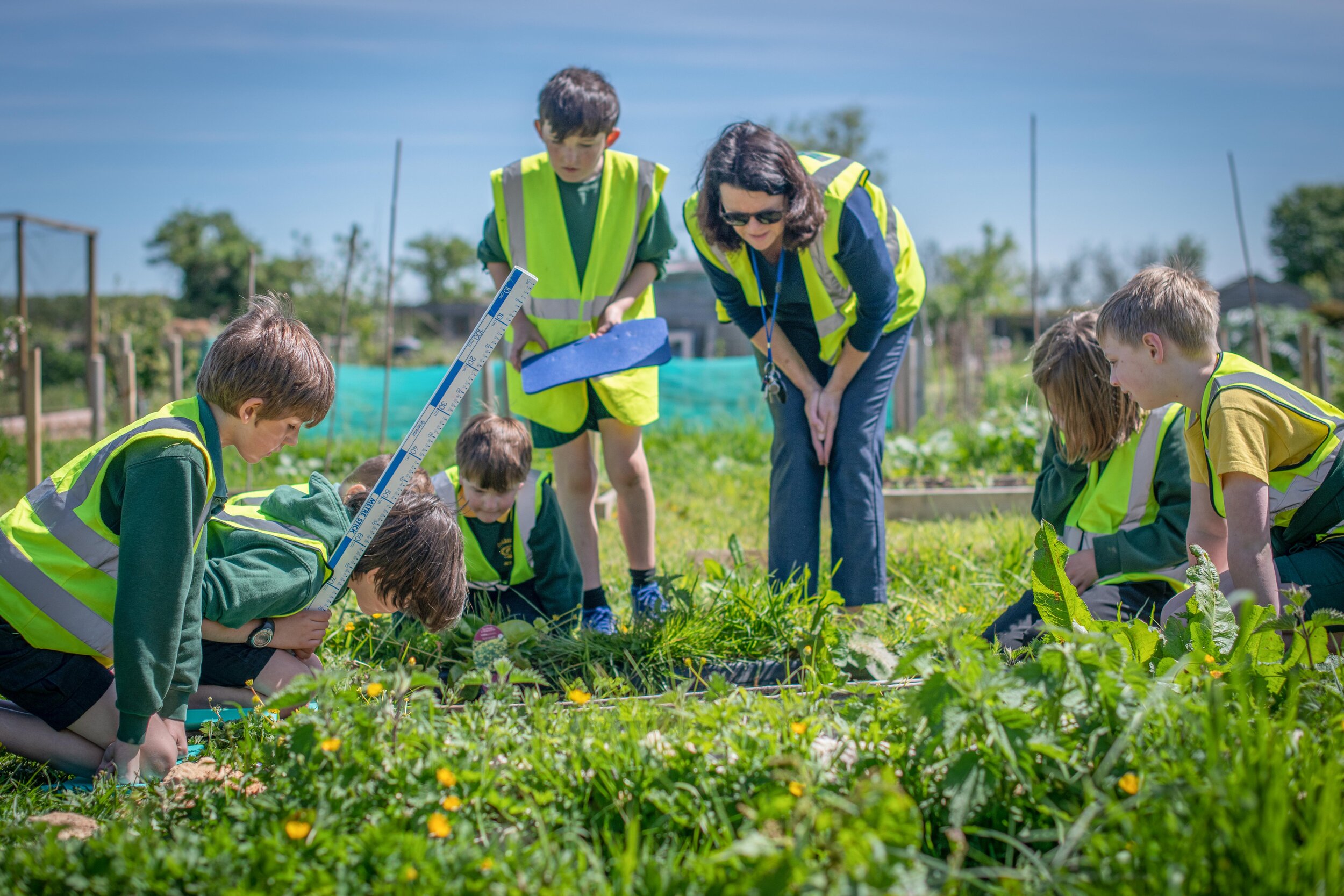
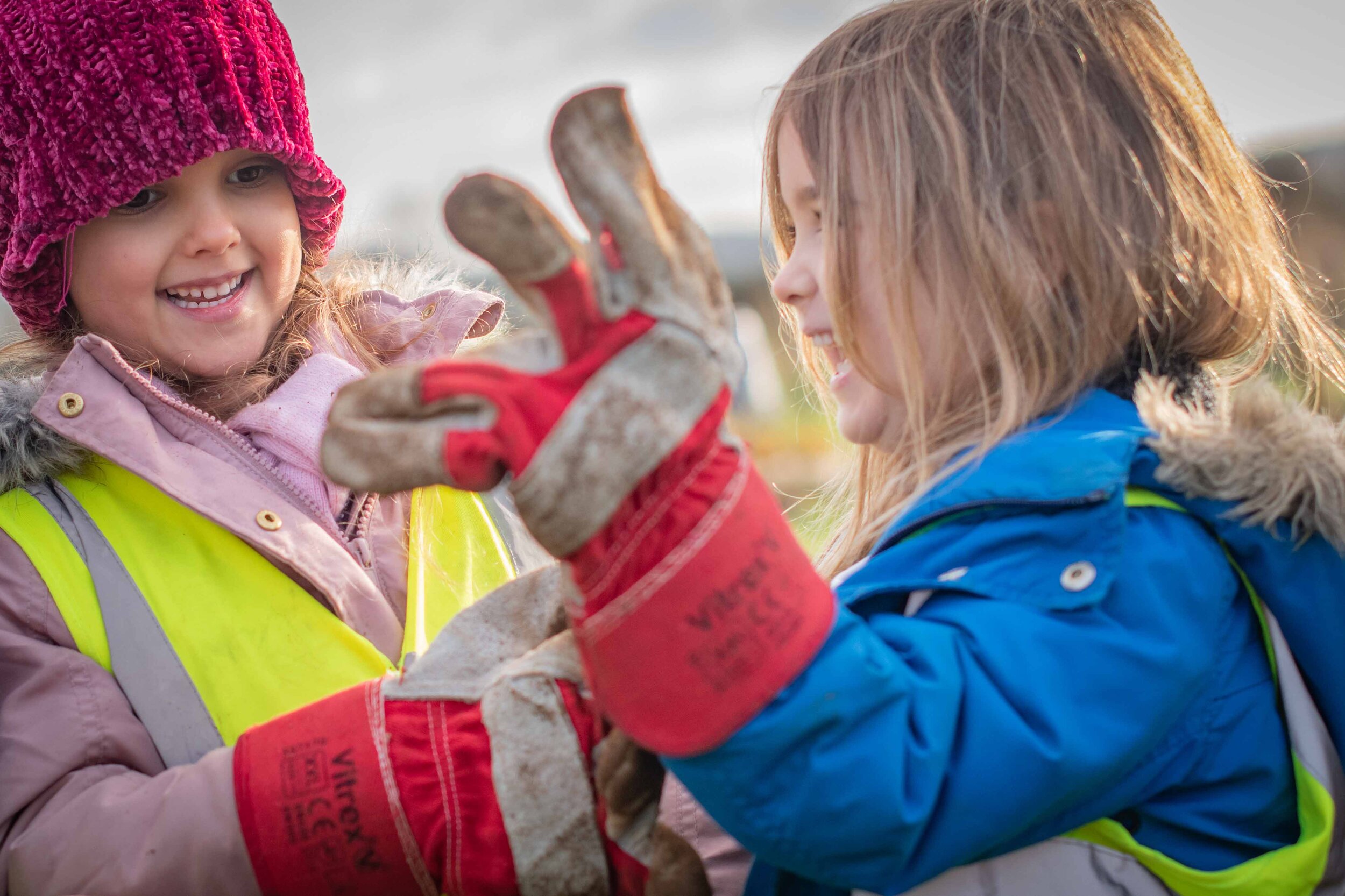
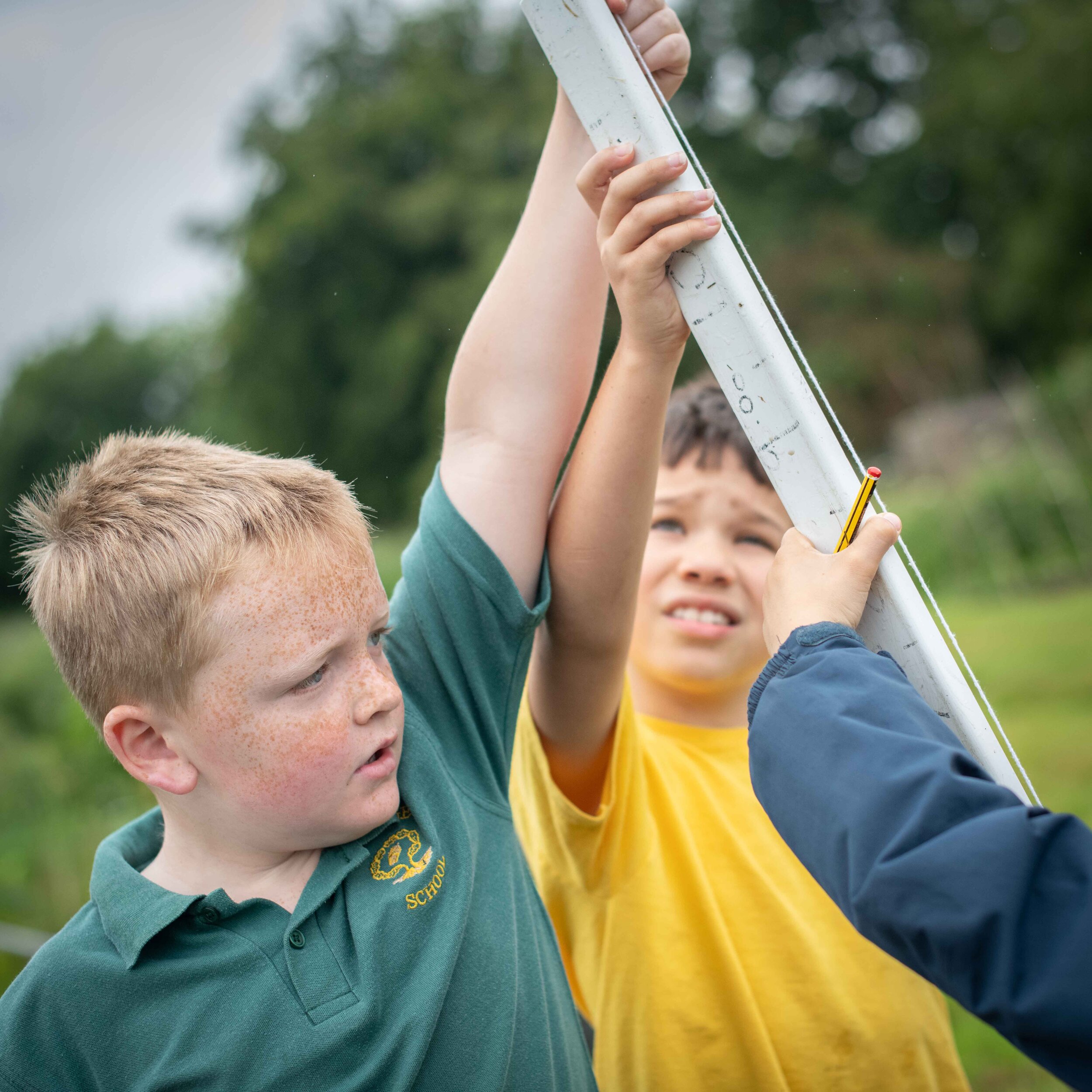
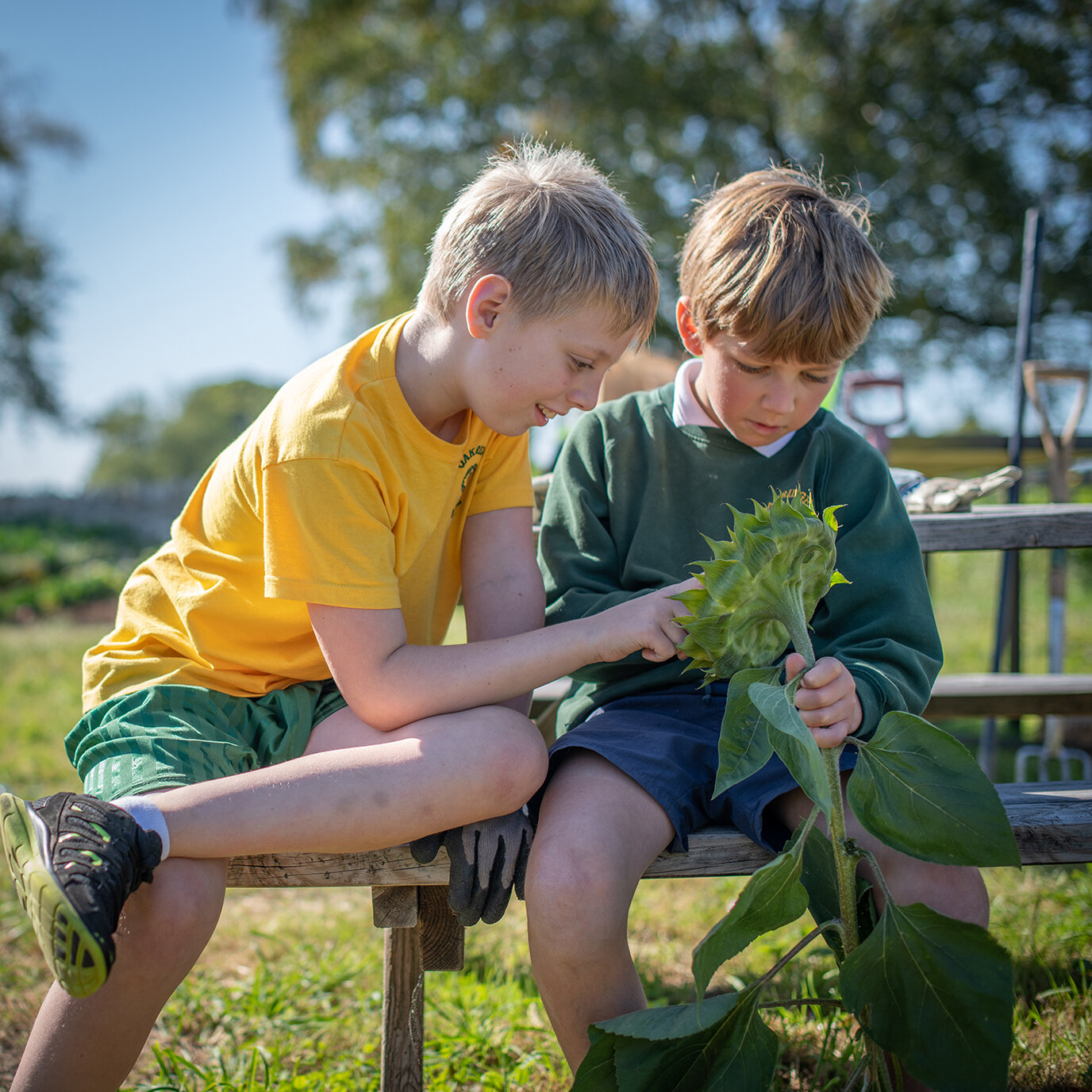
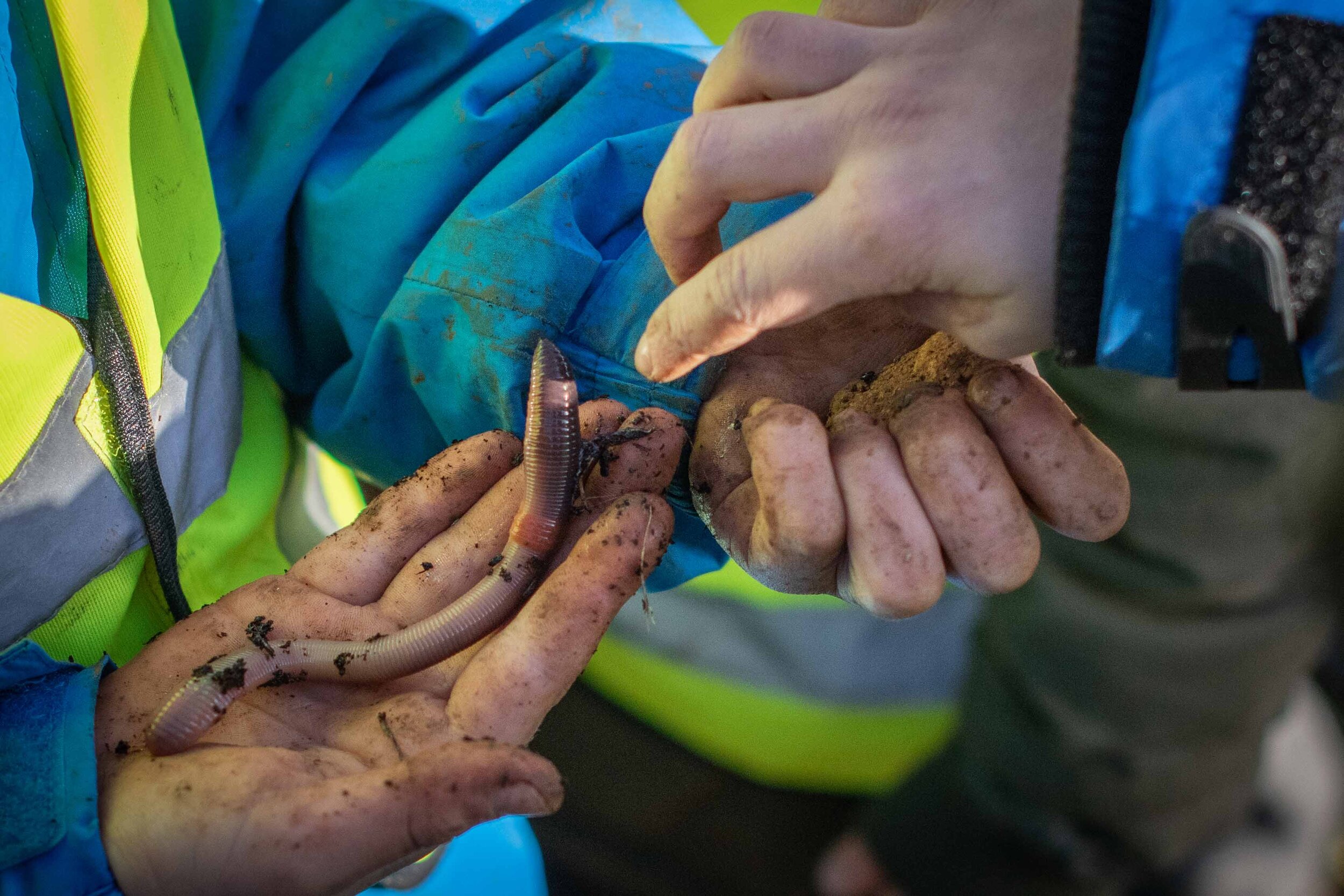
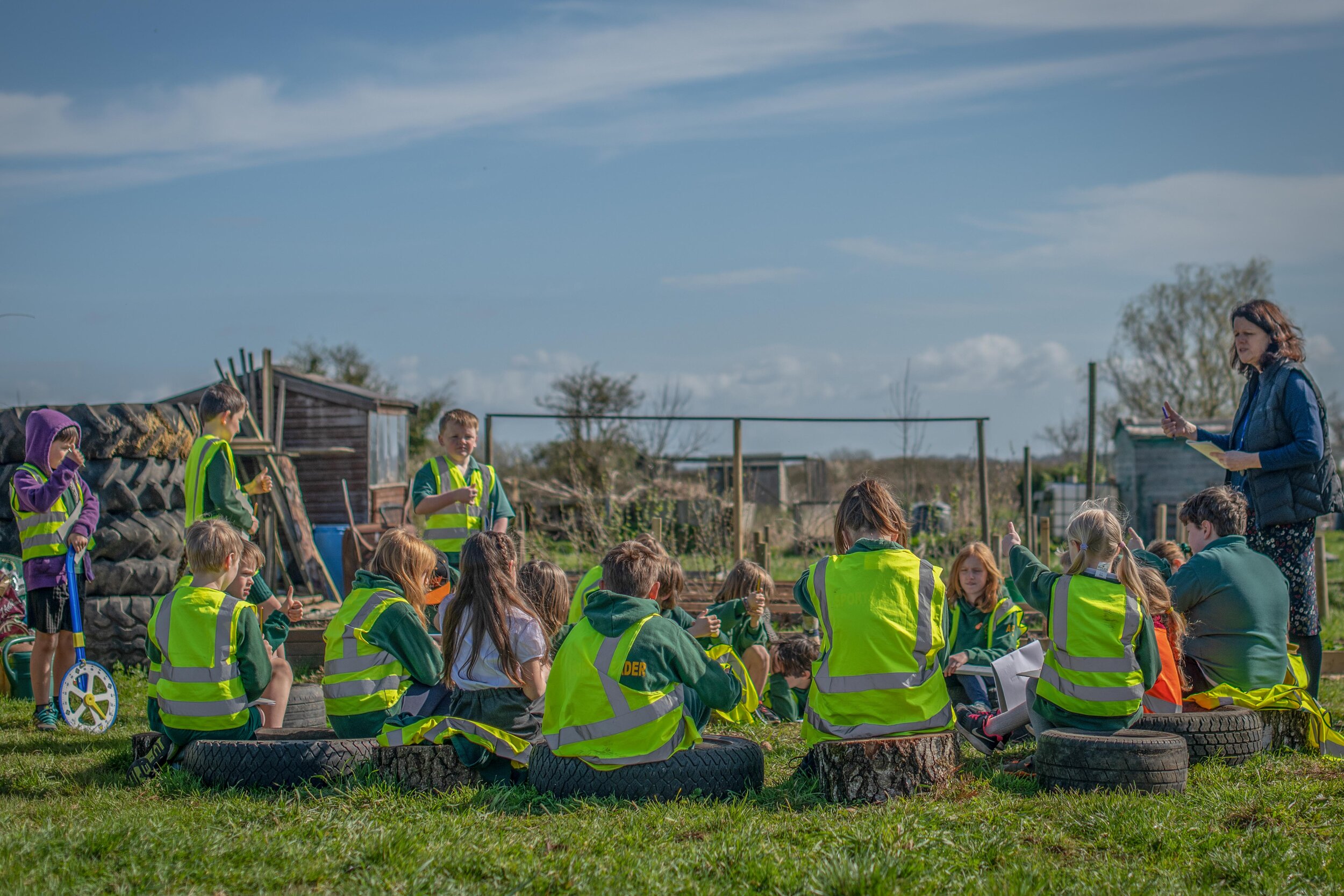
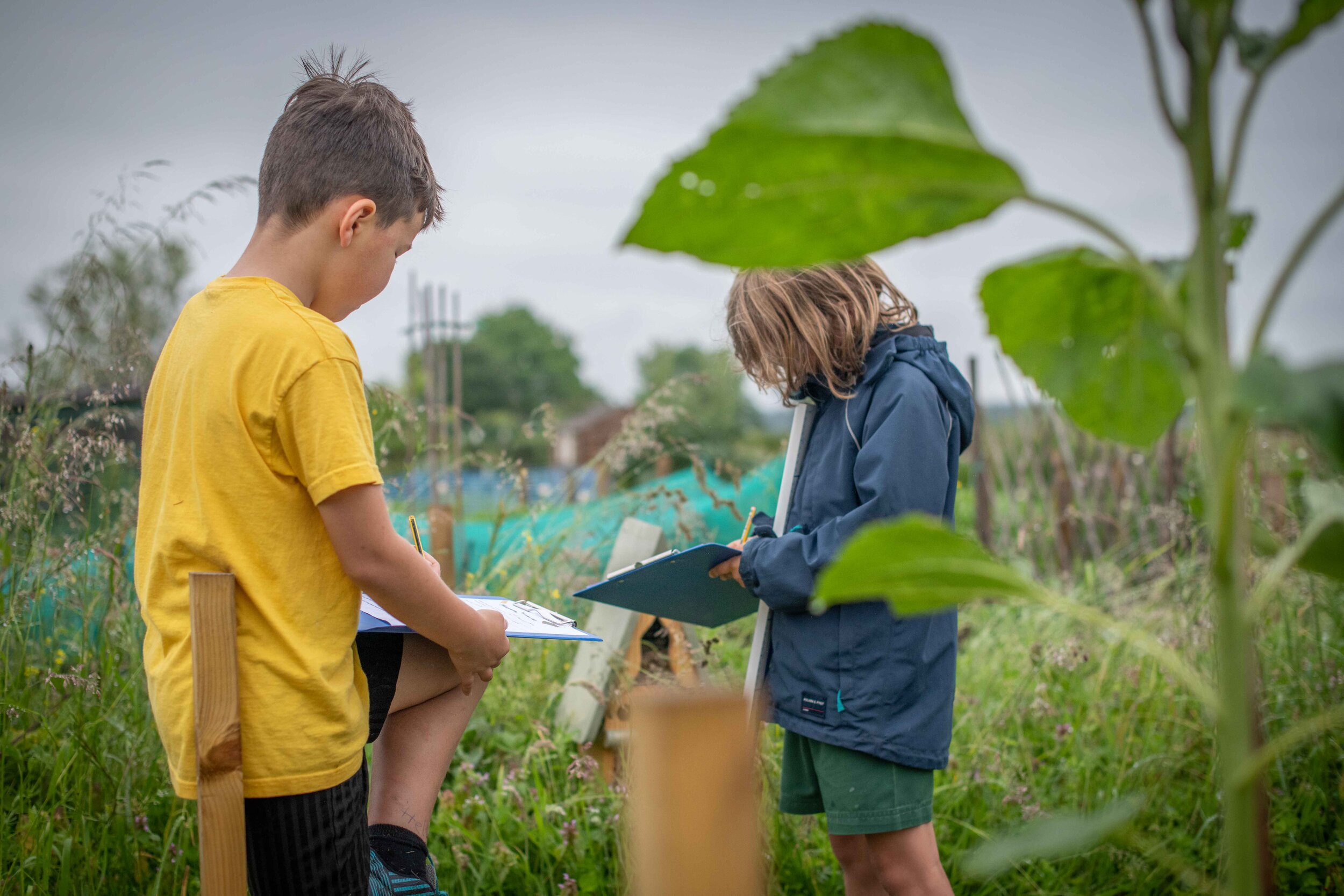
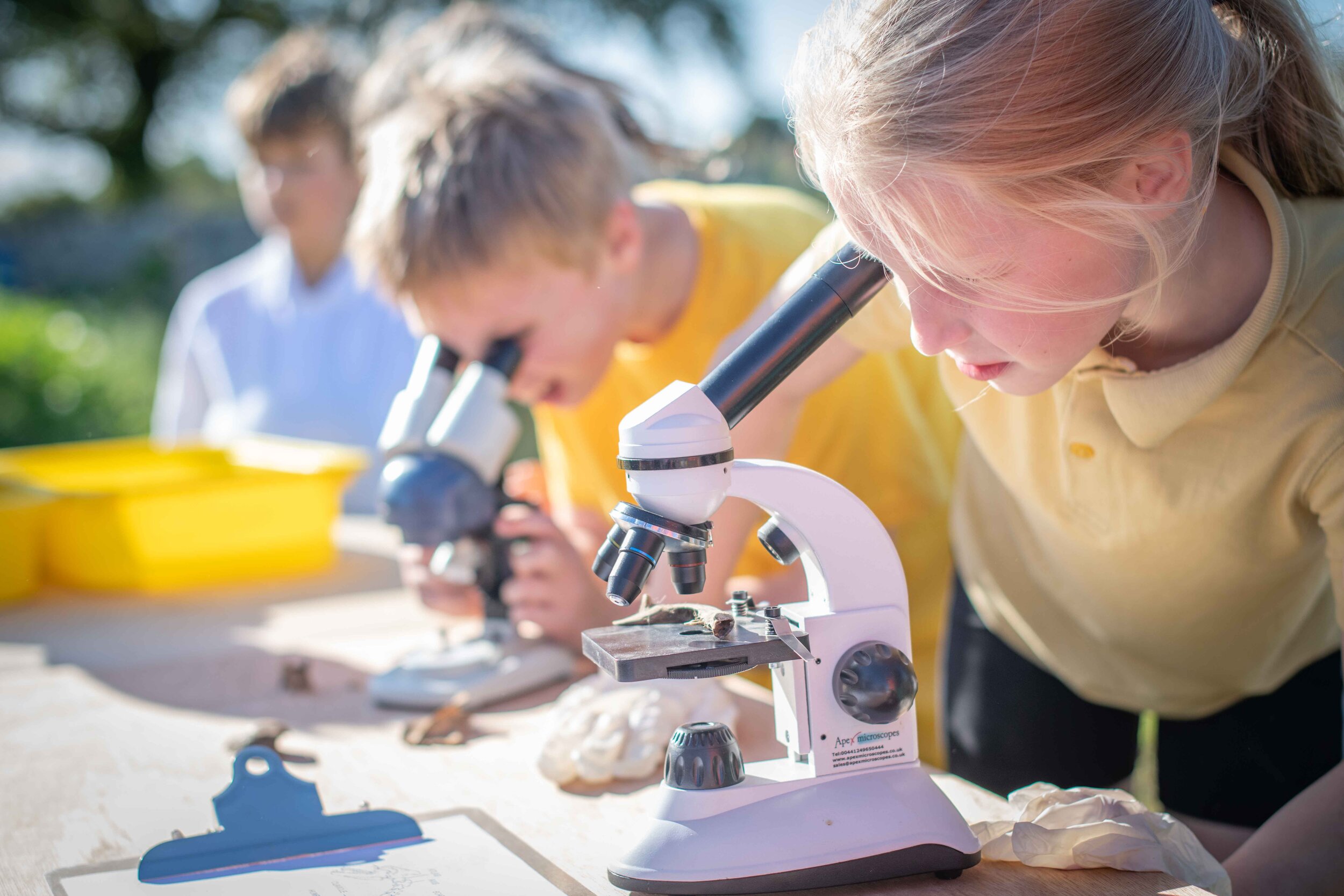
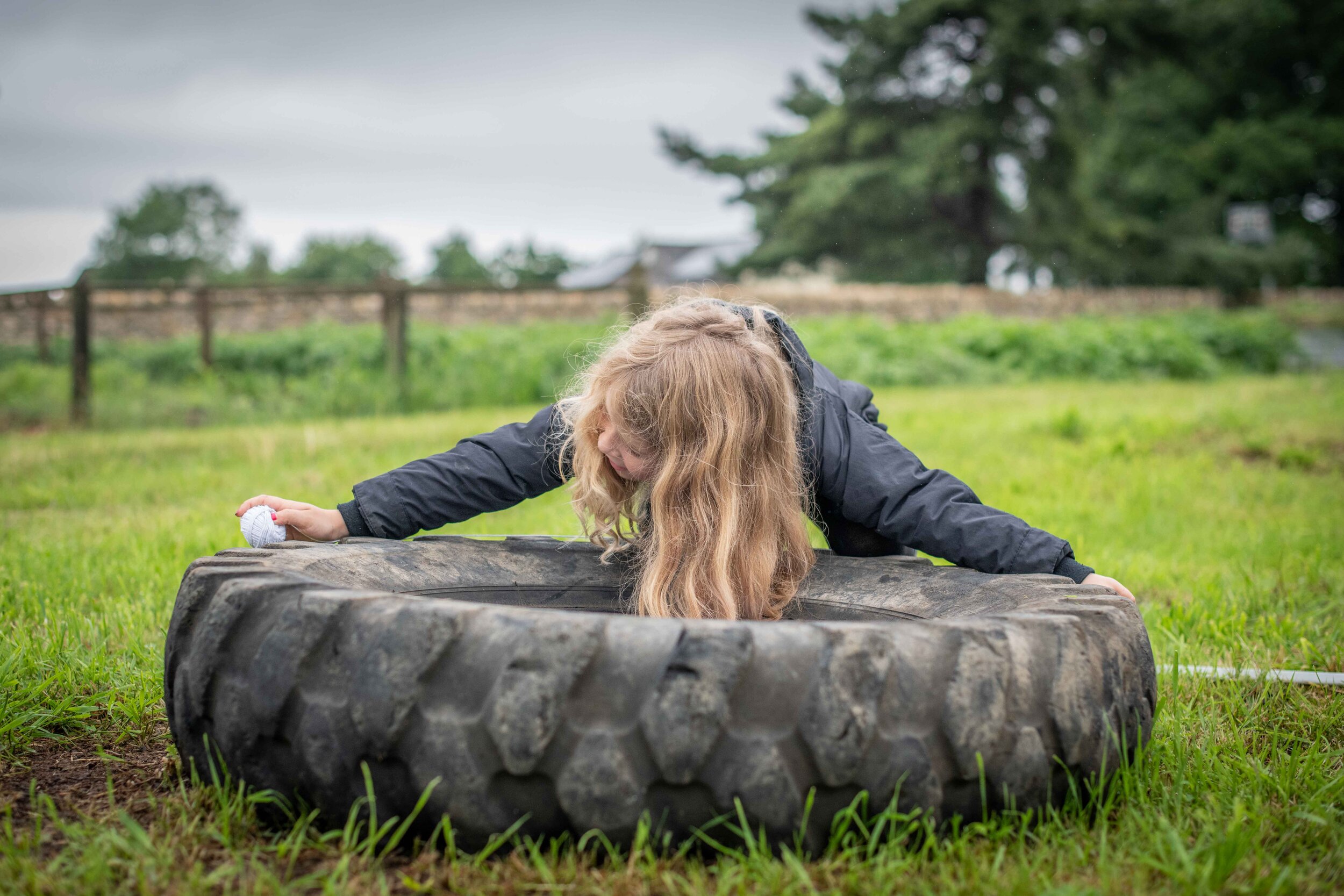

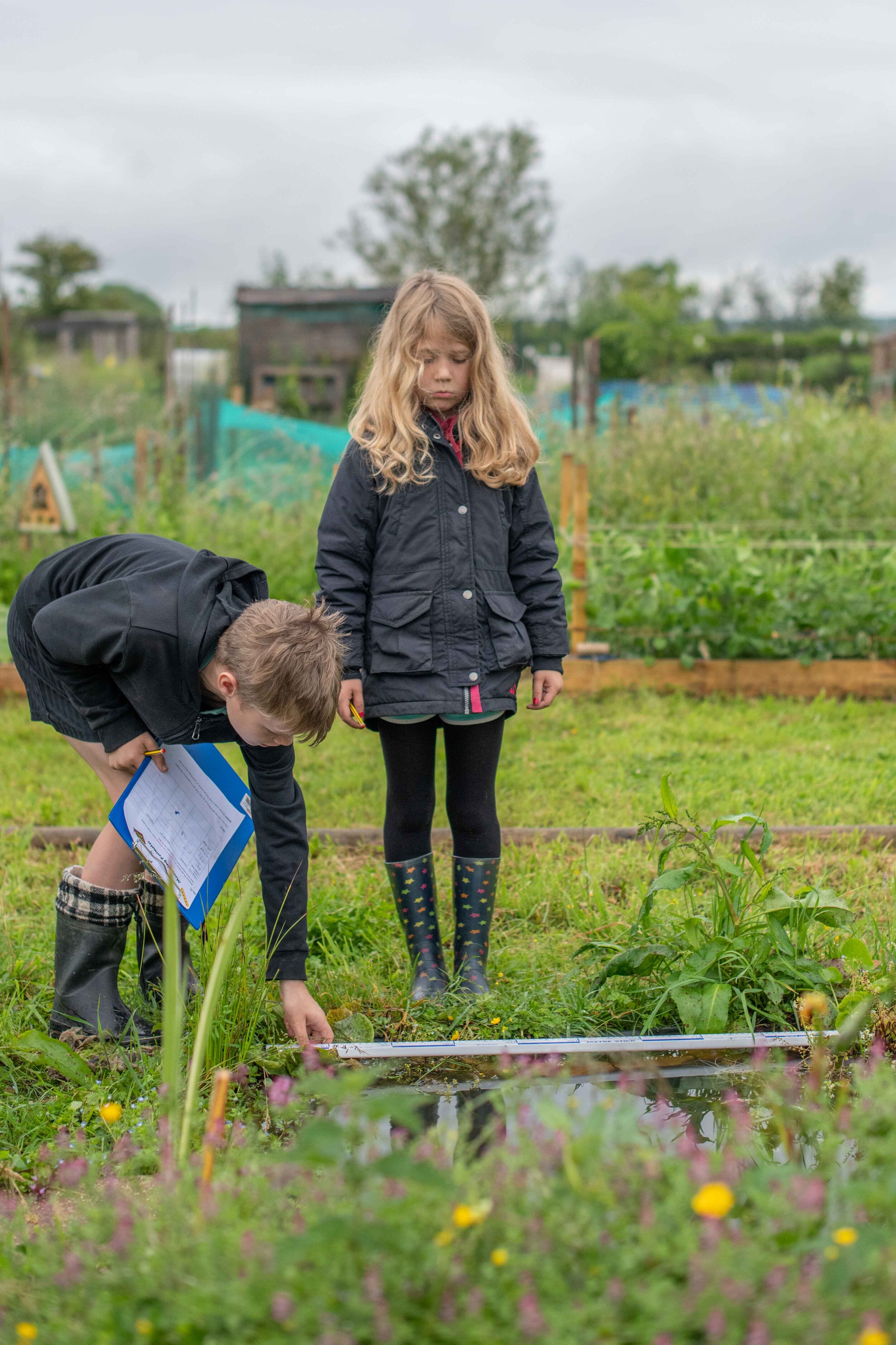

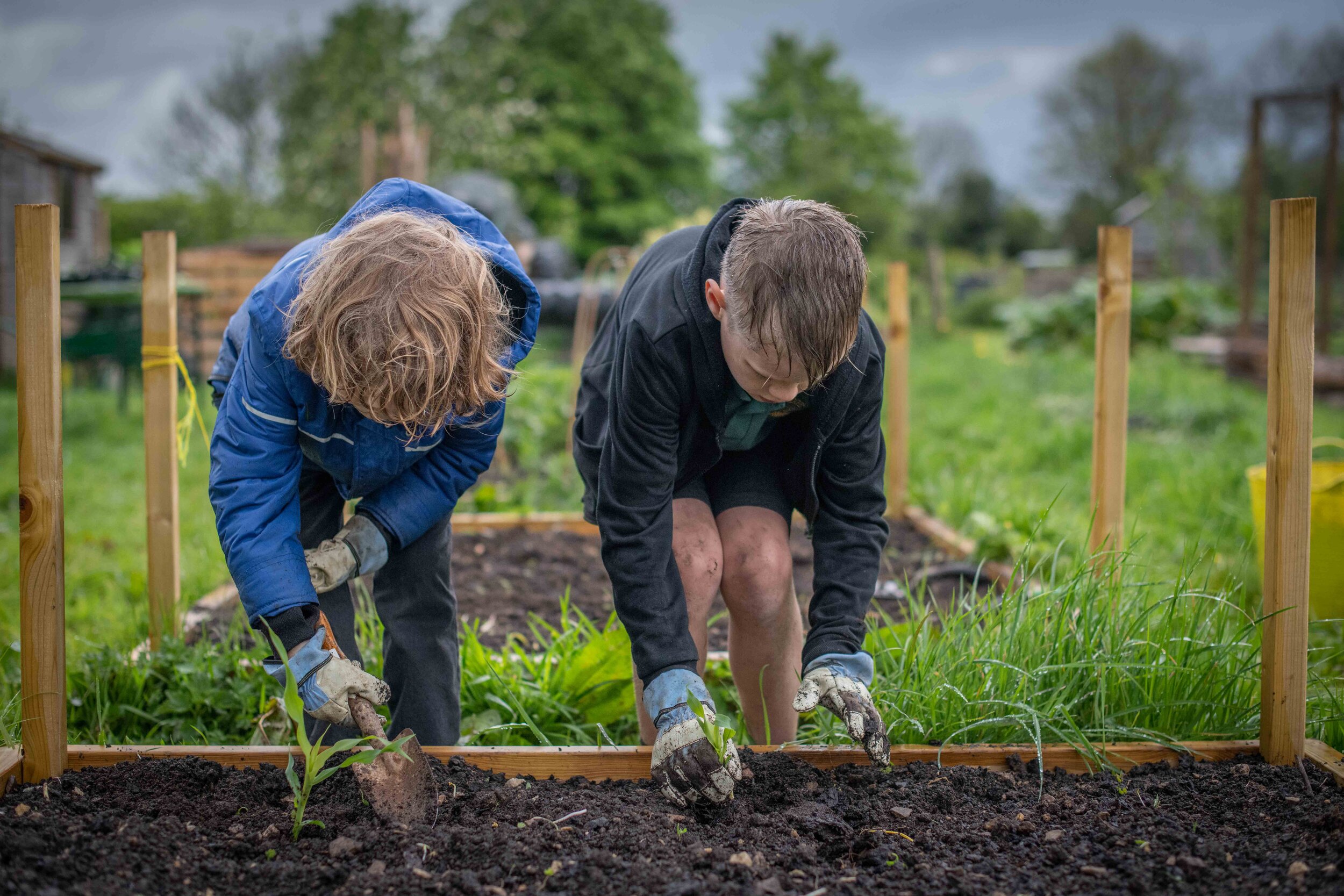
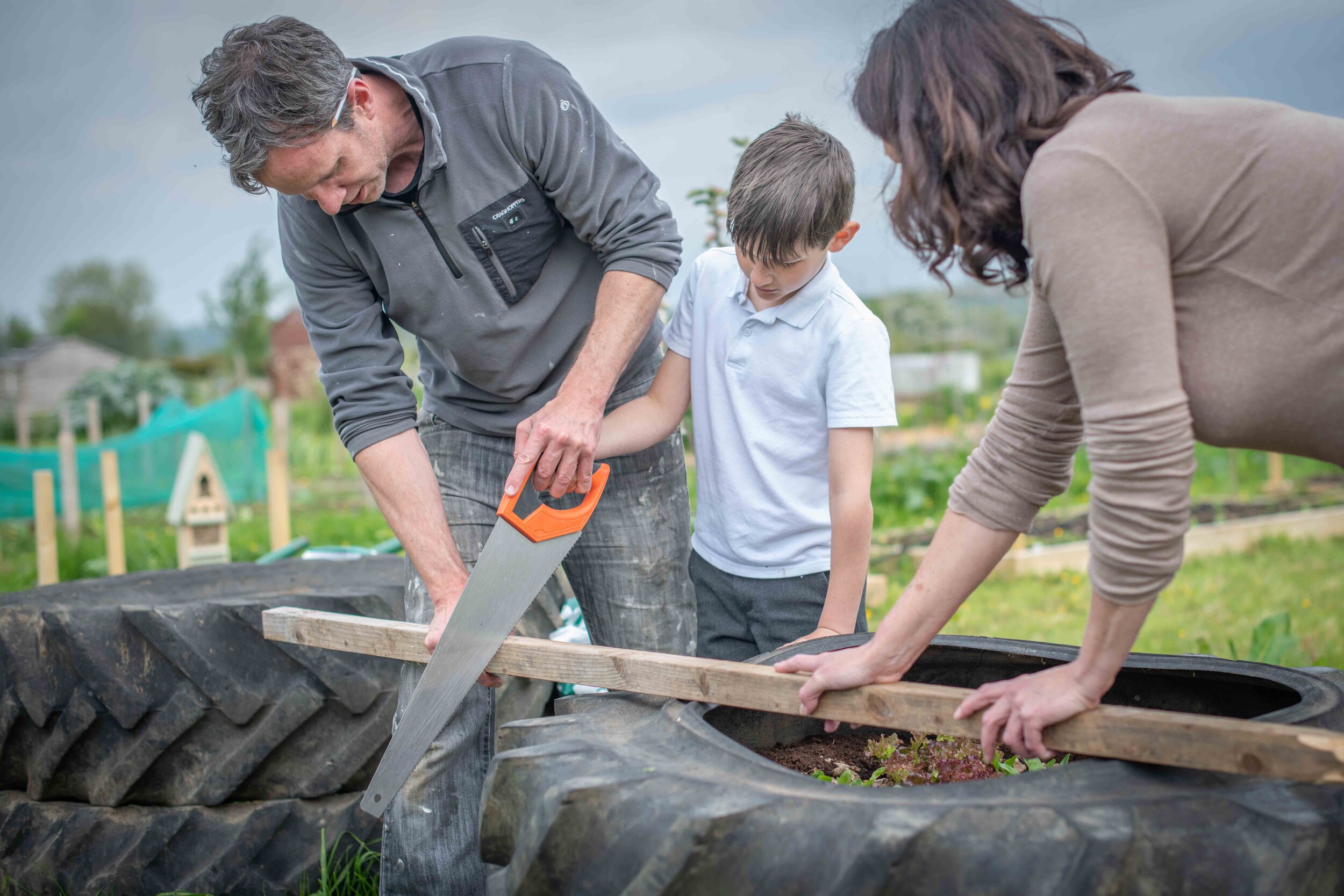
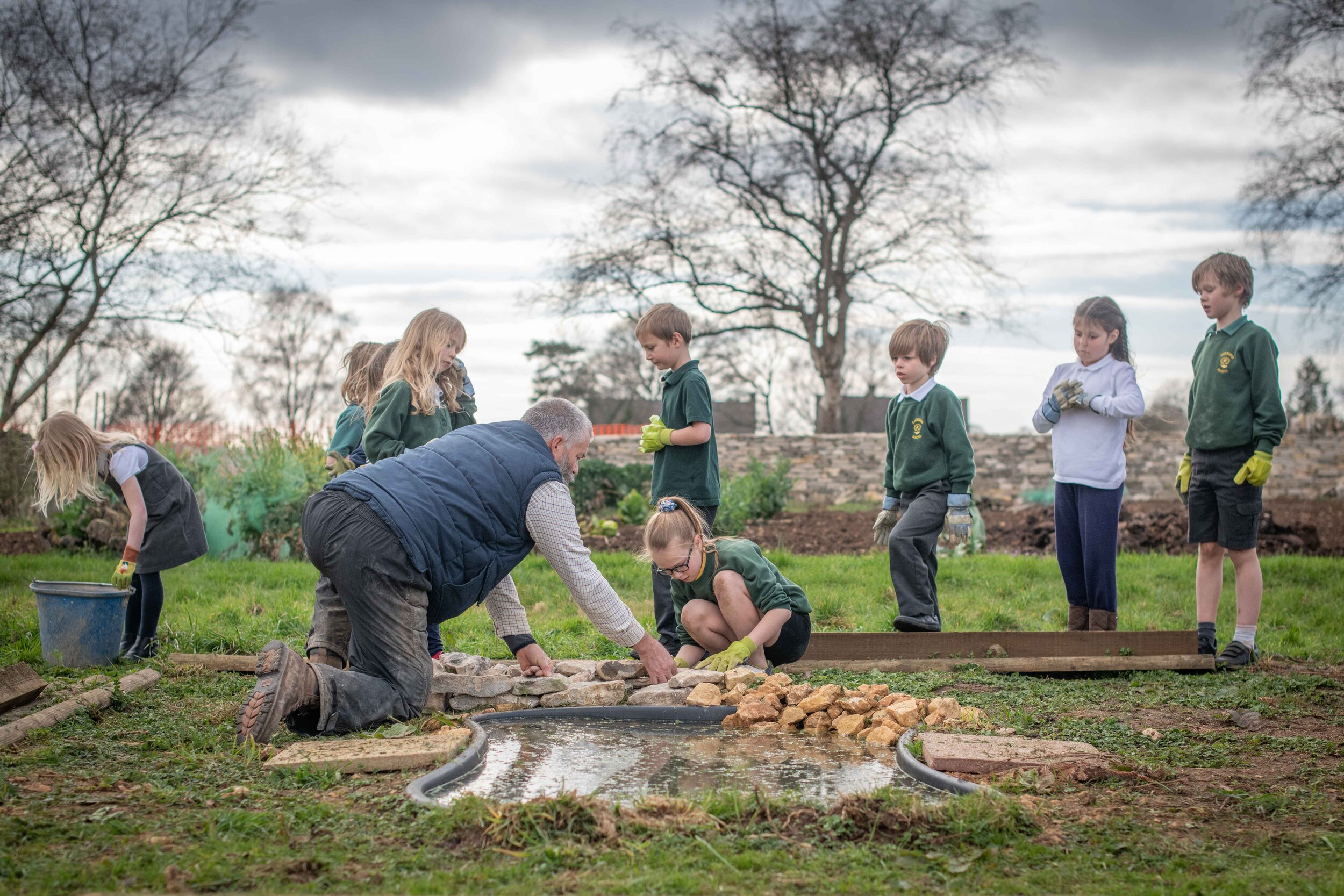
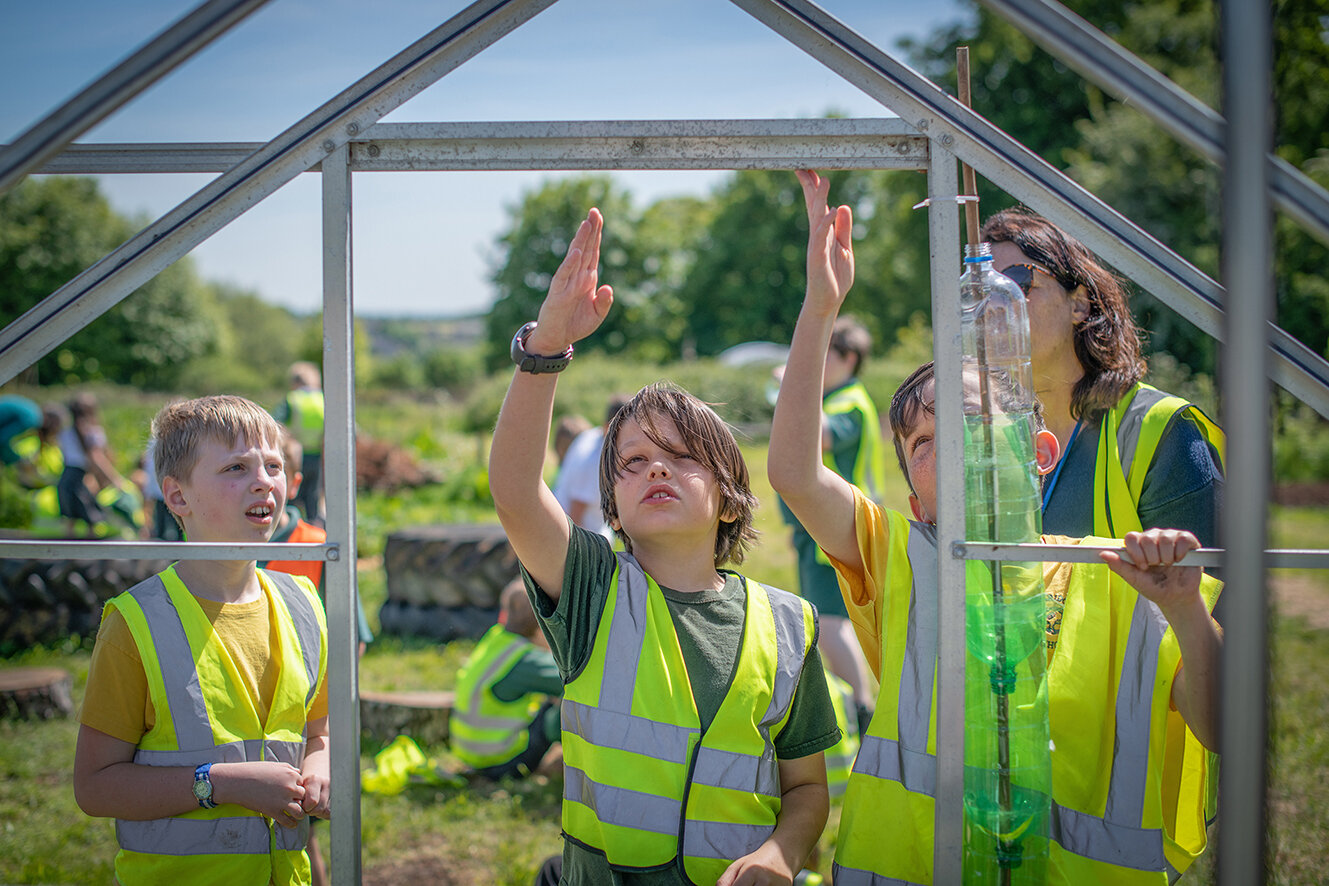
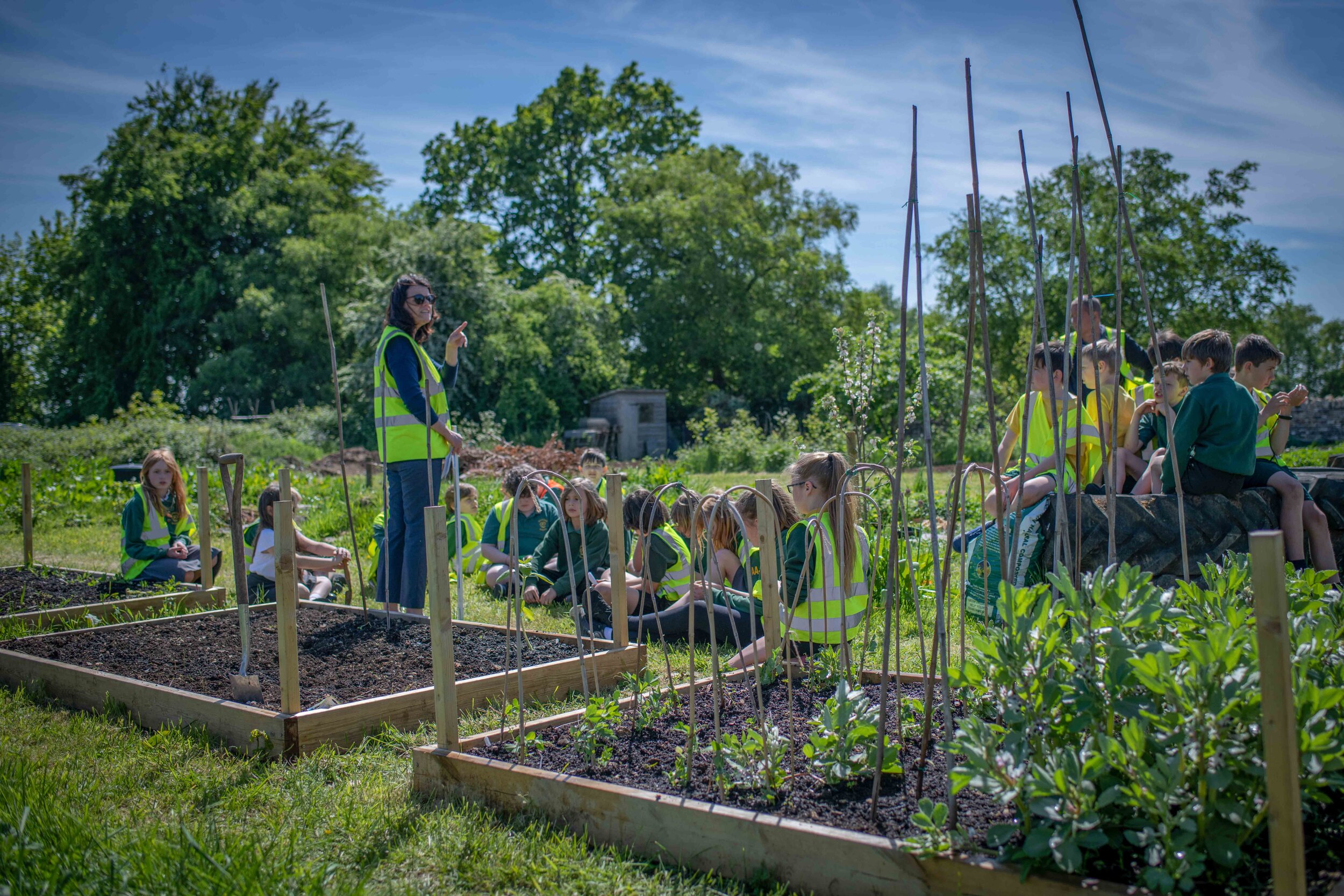
From The Ground
From The Ground is a new allotment project by Oakridge Parochial School. The project is a whole school initiative founded for the children, created by the parents and supported by the teachers. The sole purpose of the idea is to enrich the children’s curriculum. The new allotment provides the children with a space for hands-on learning and helps foster a better understanding of their environment.
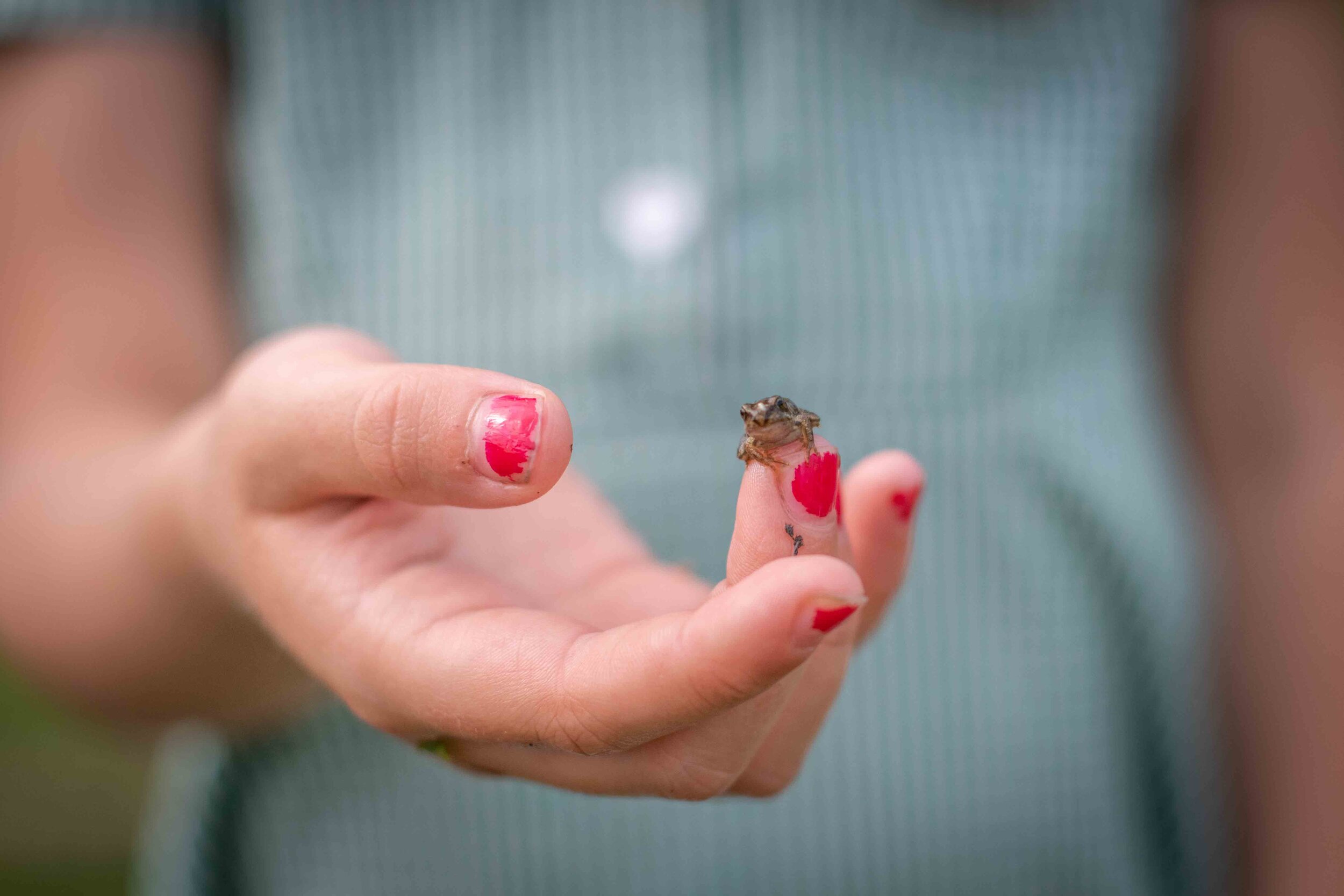
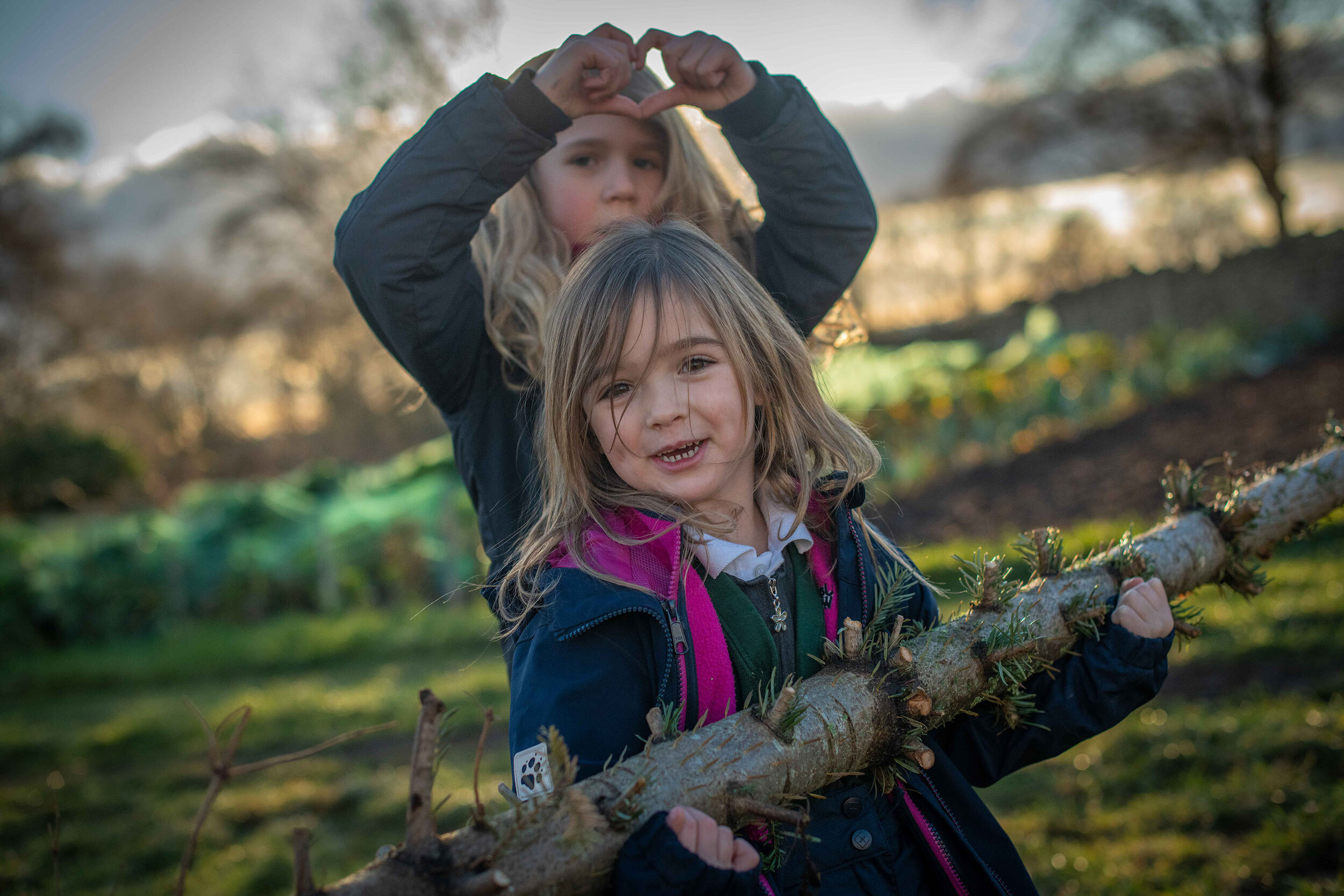
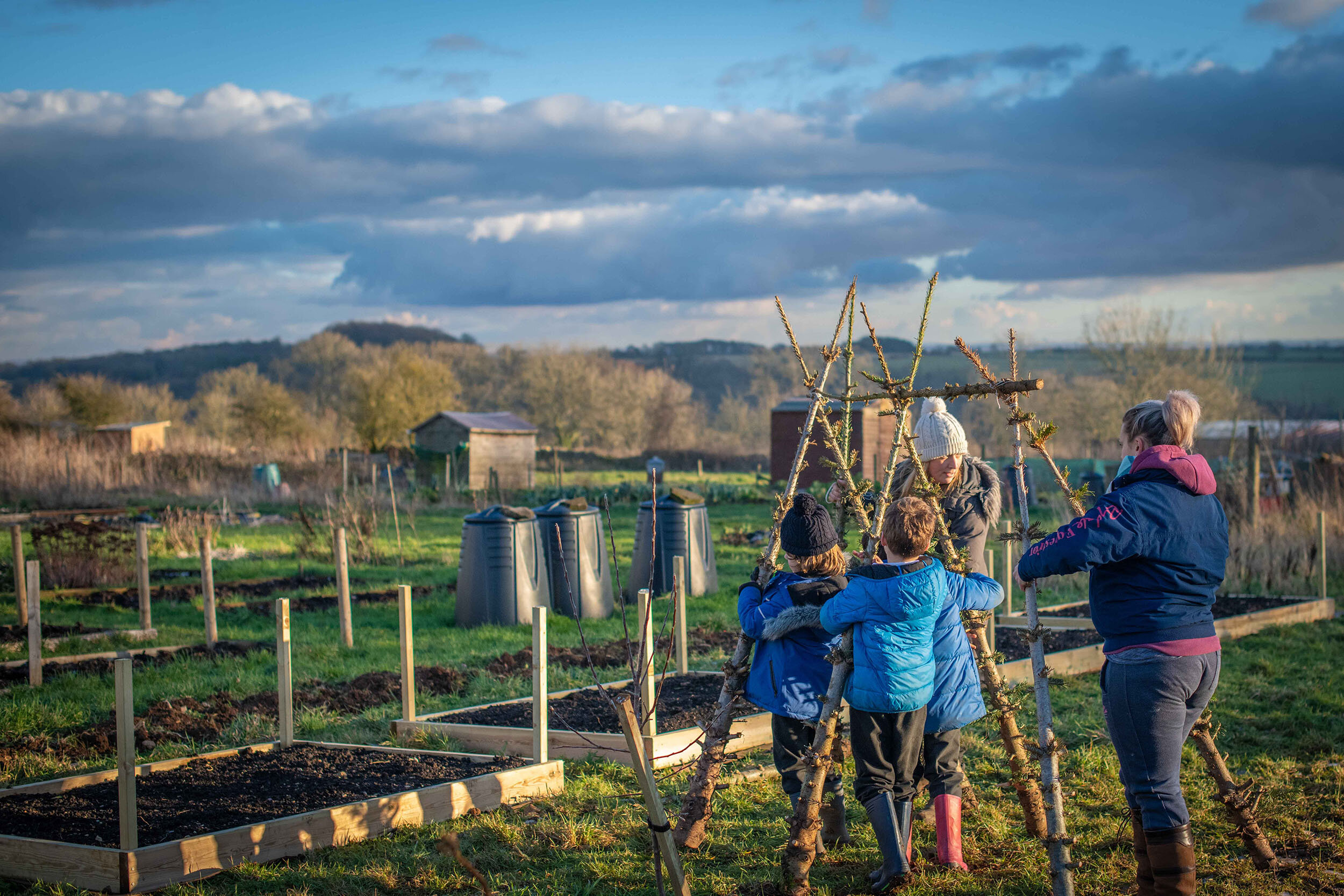
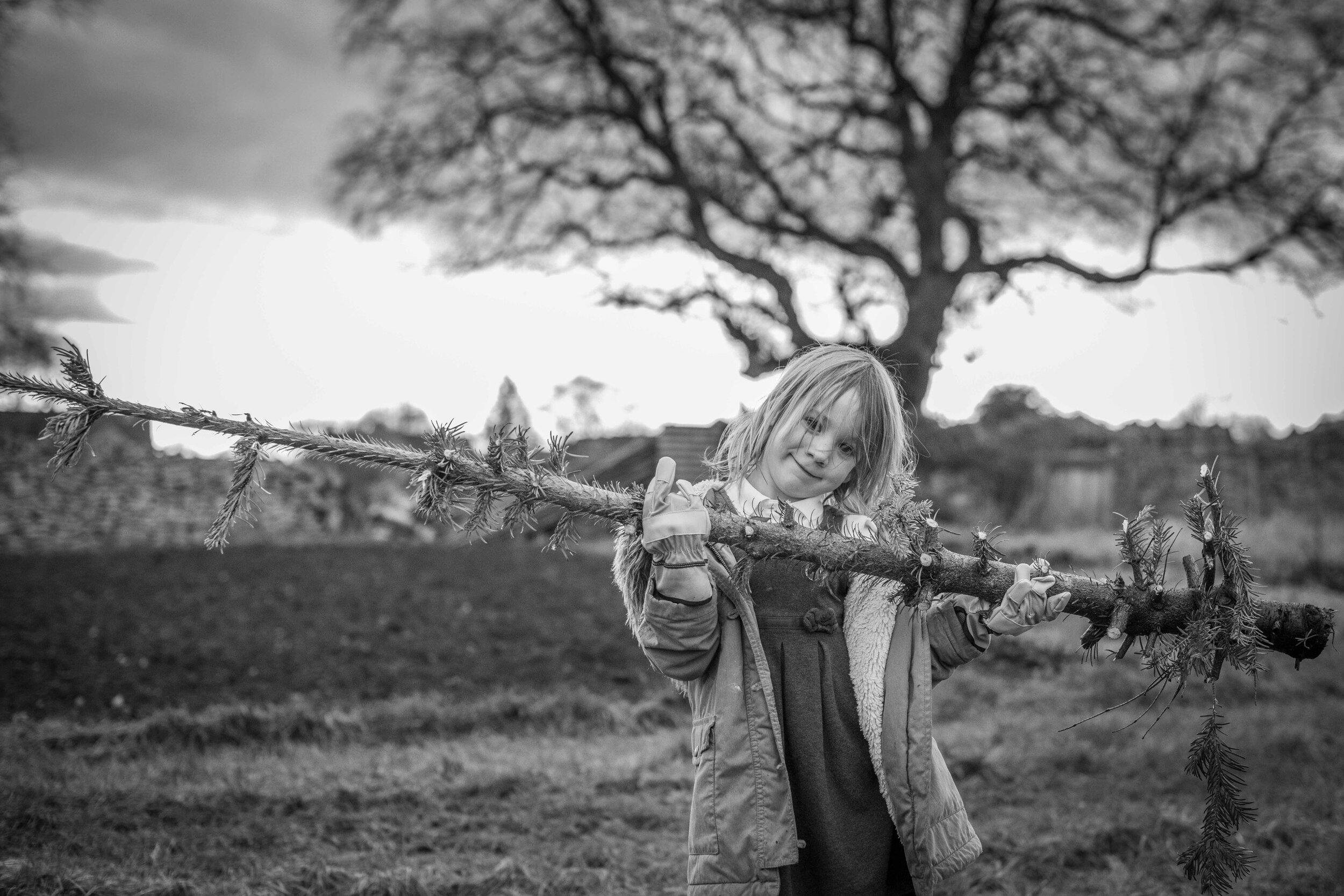
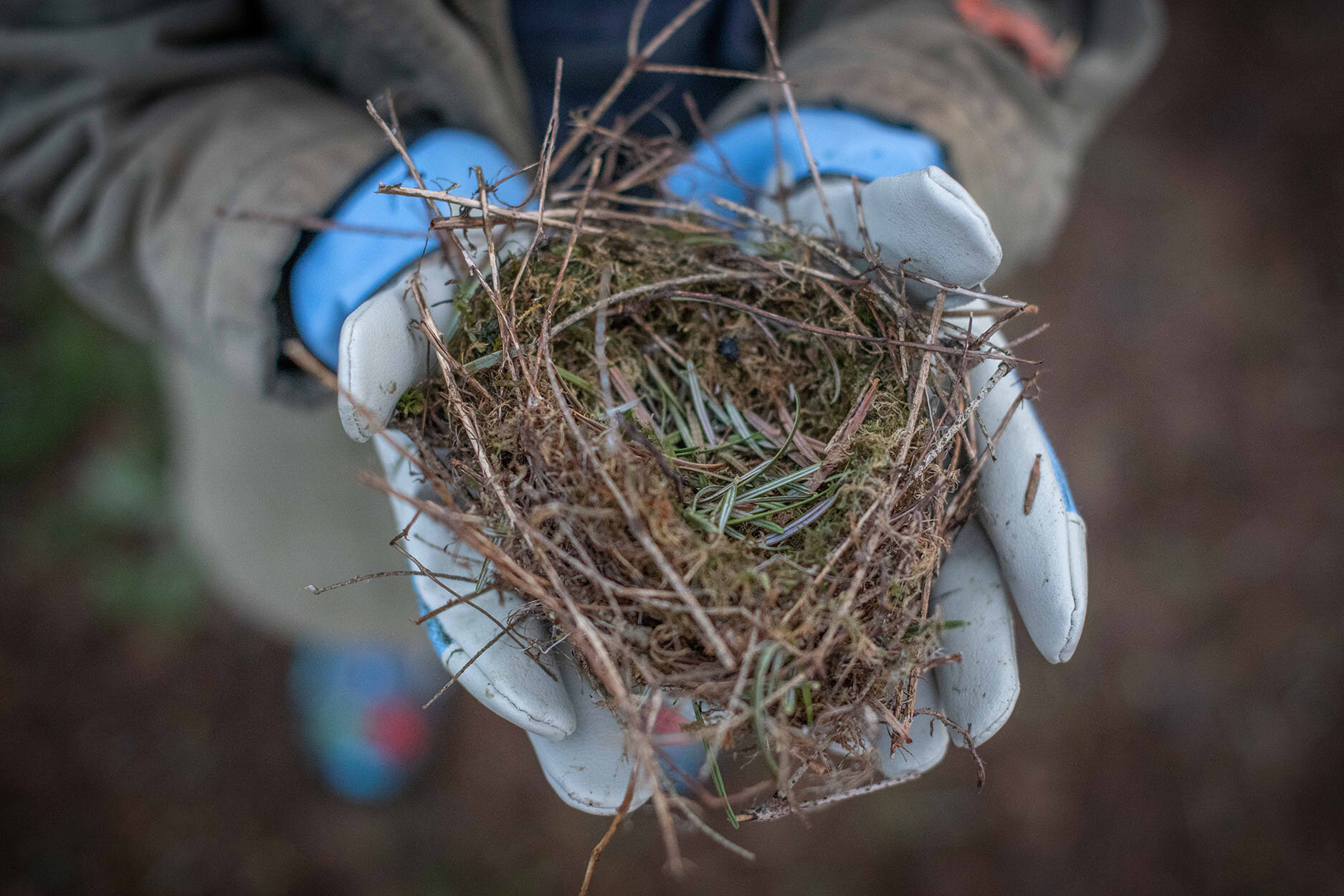
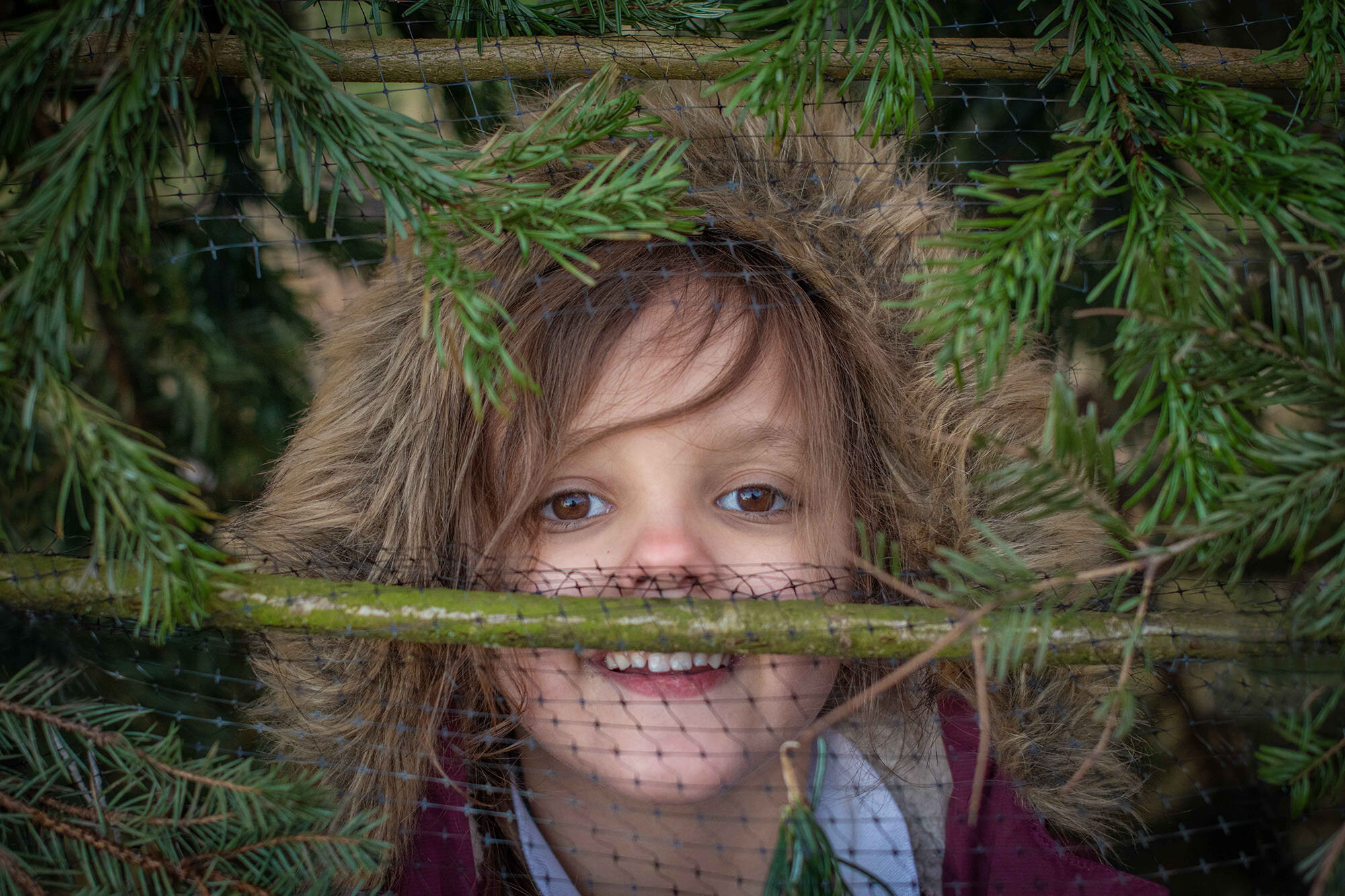
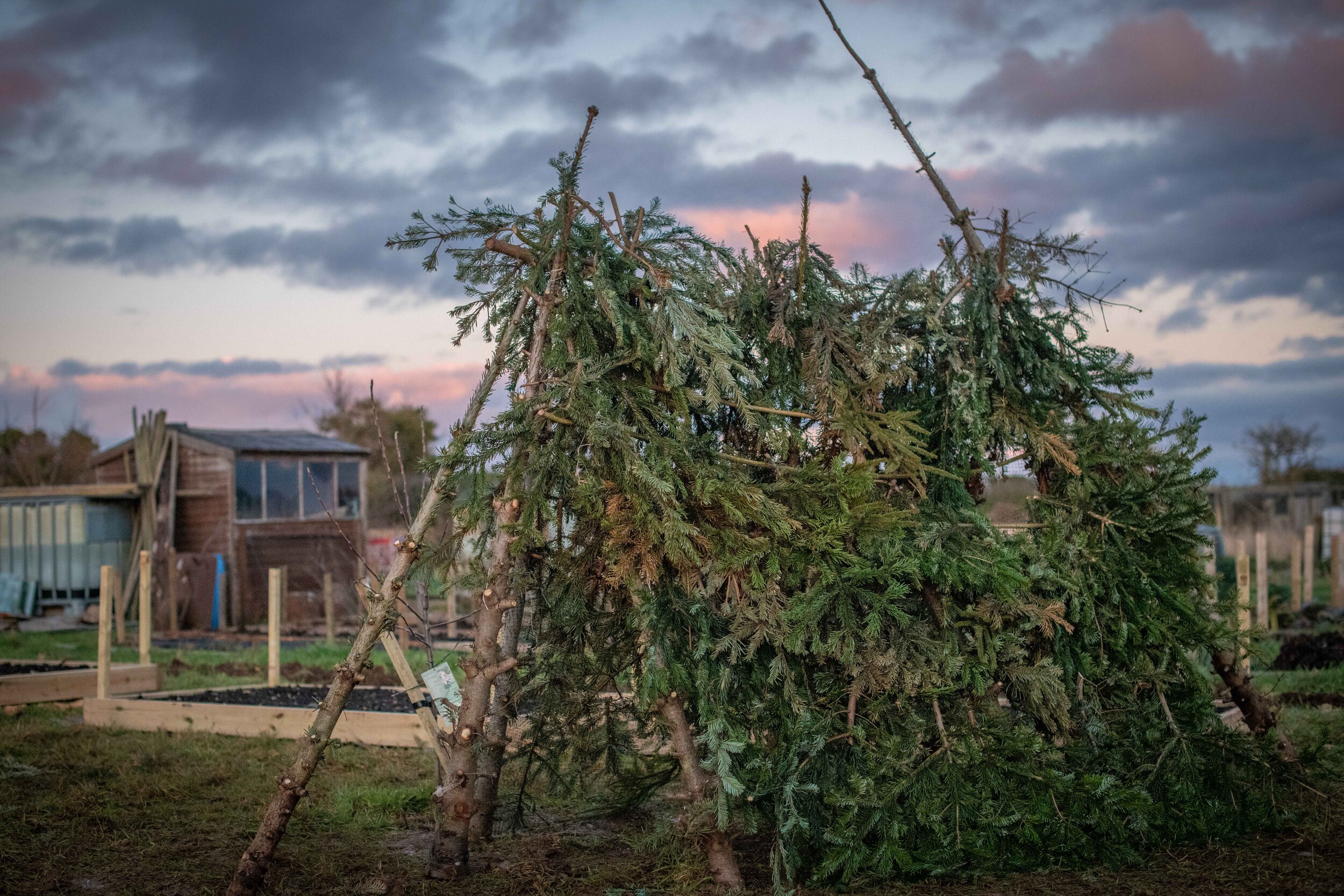
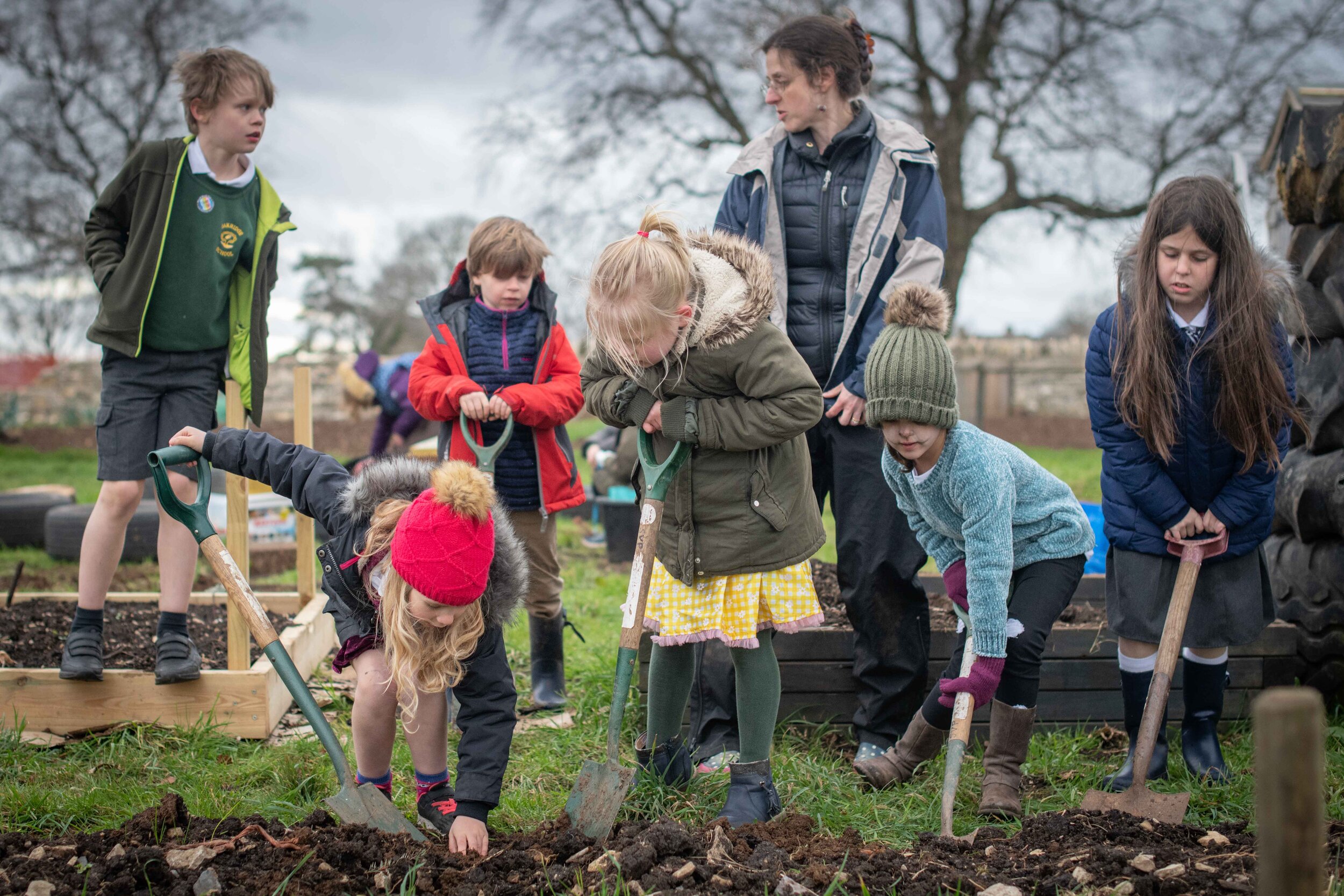
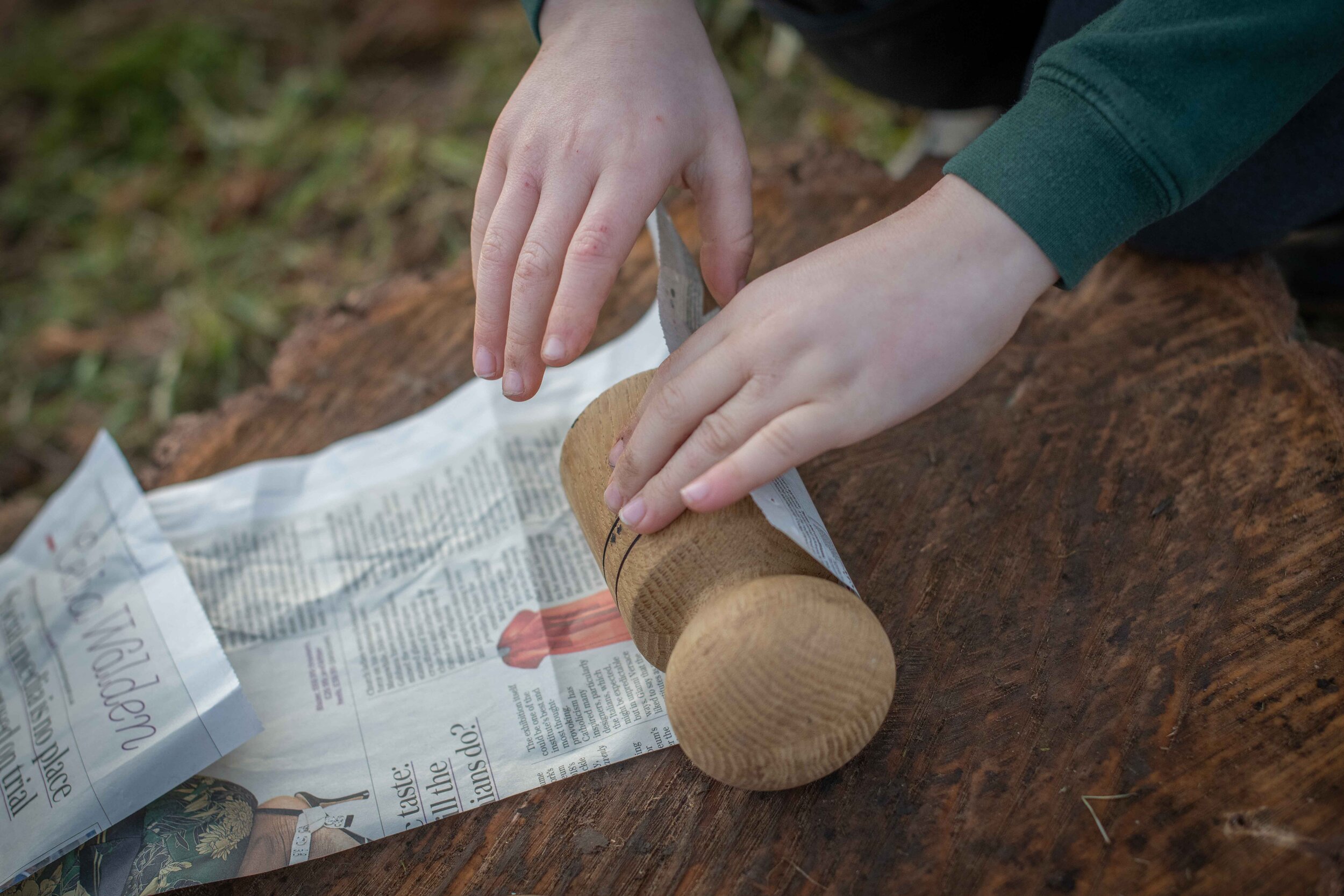
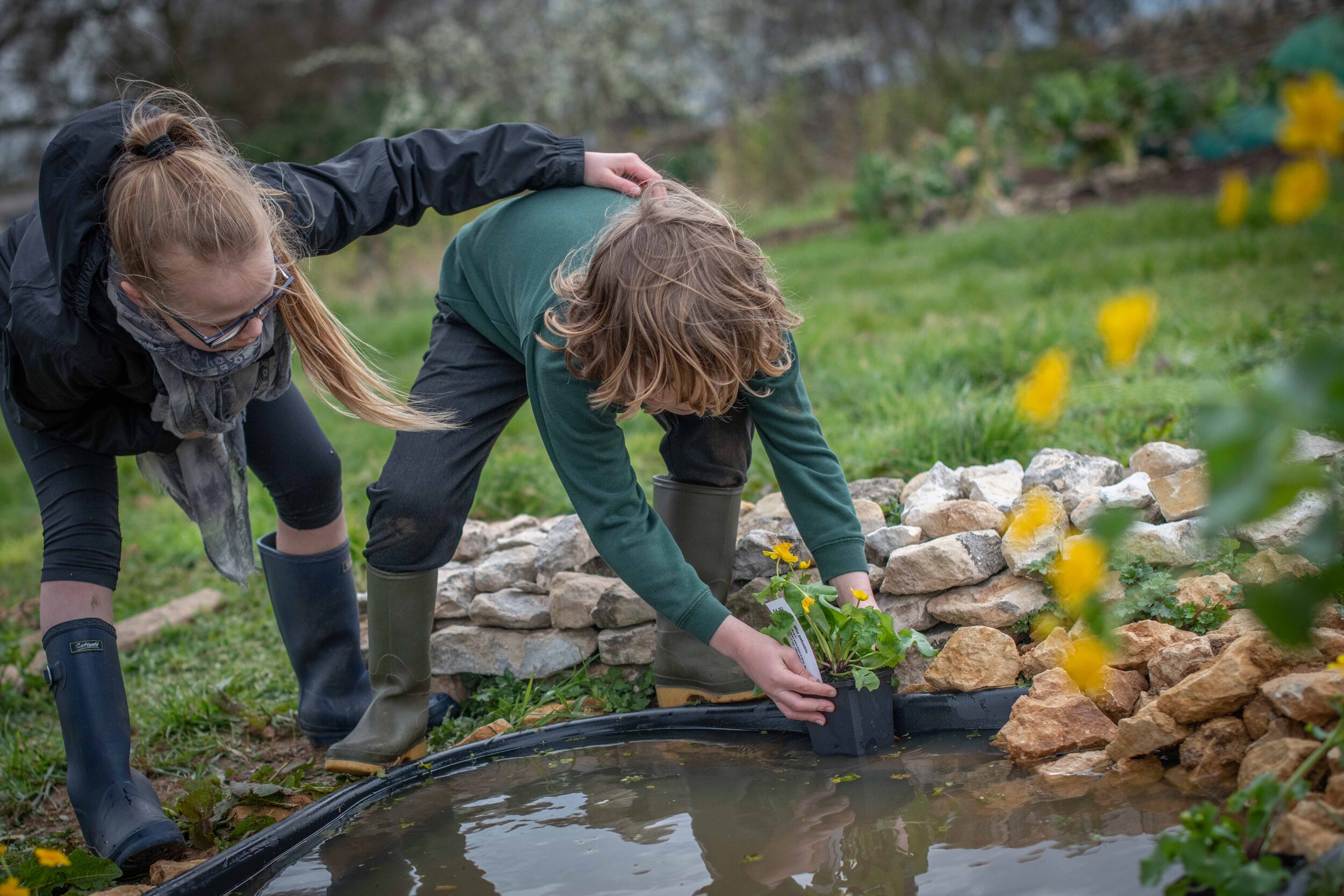
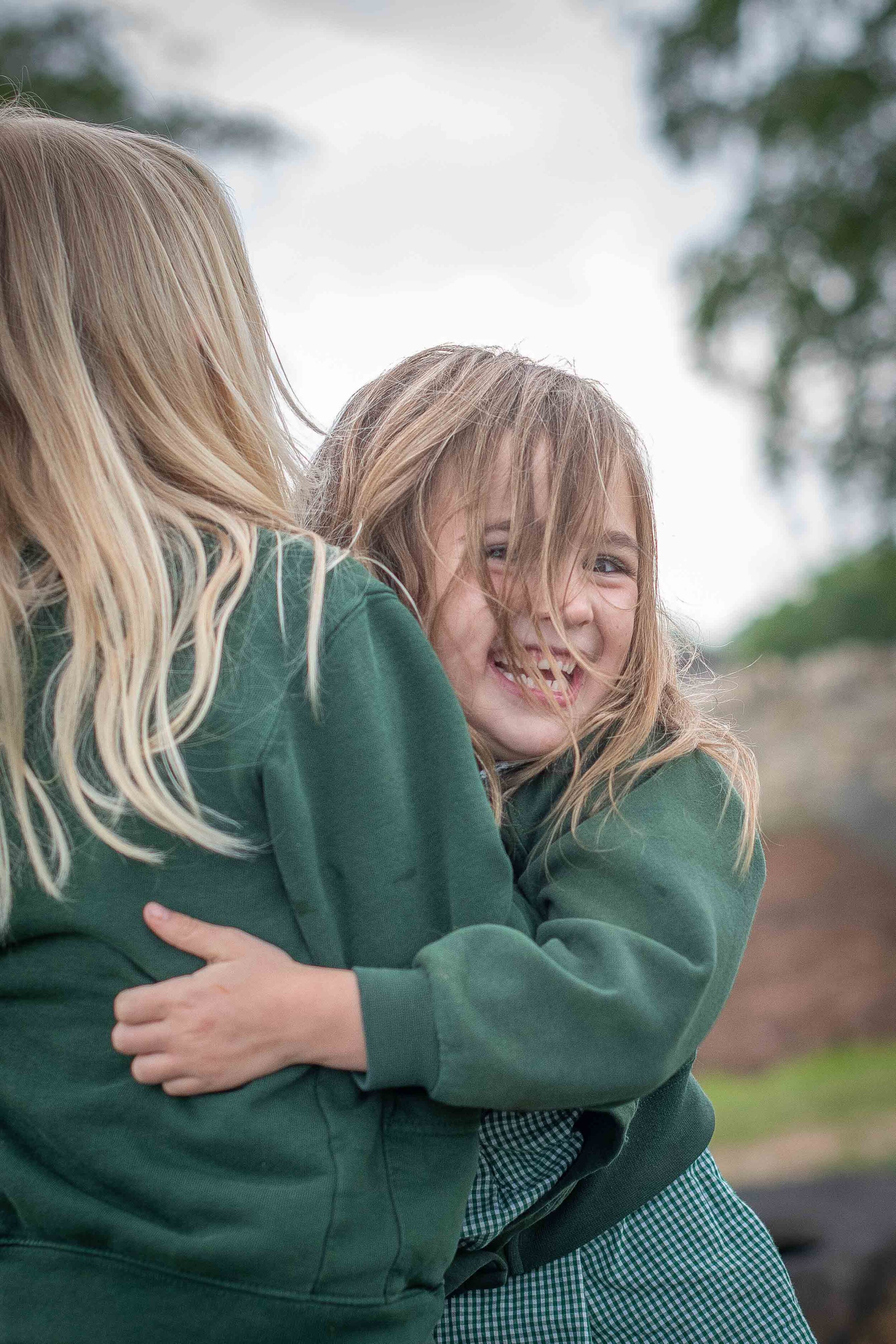
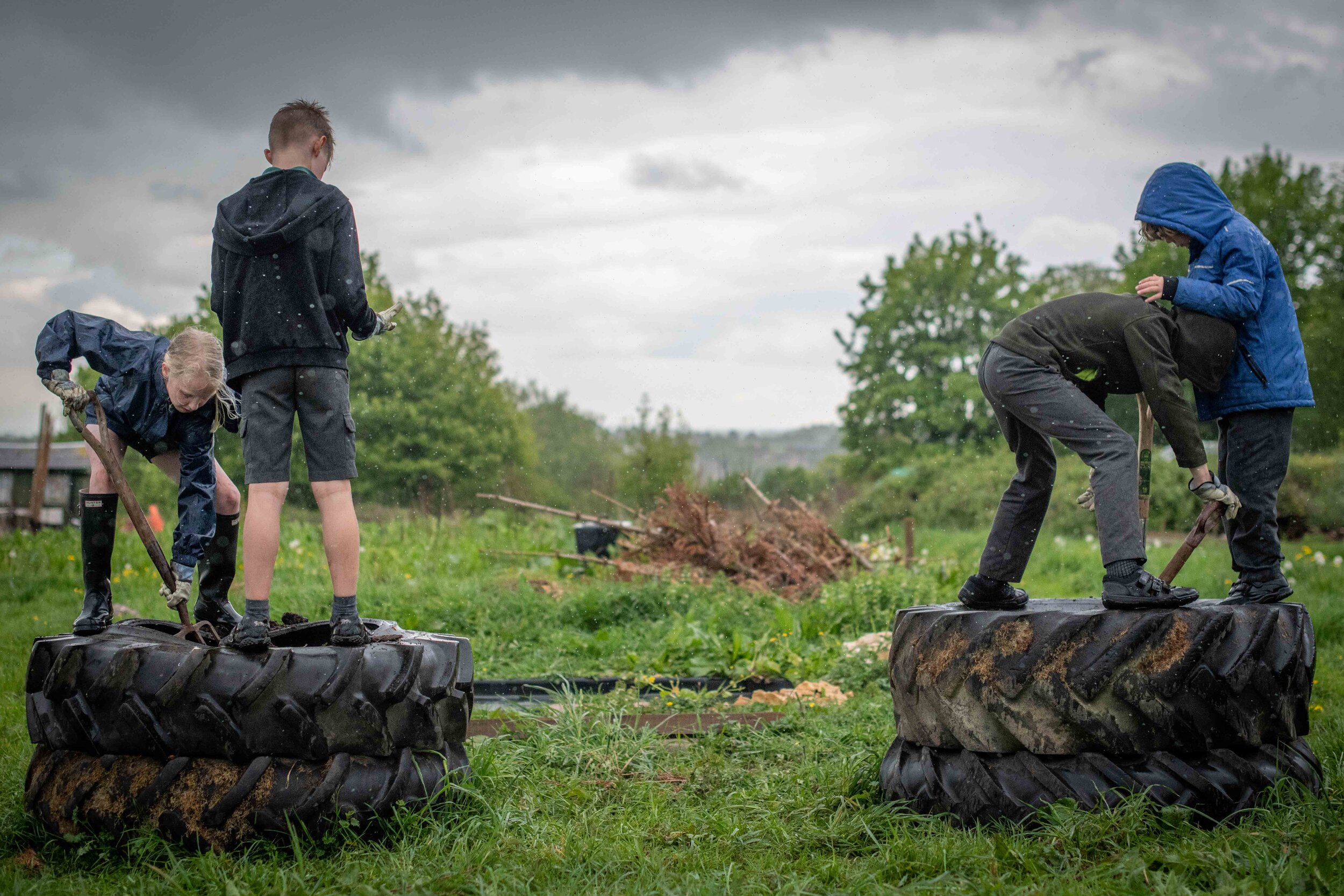
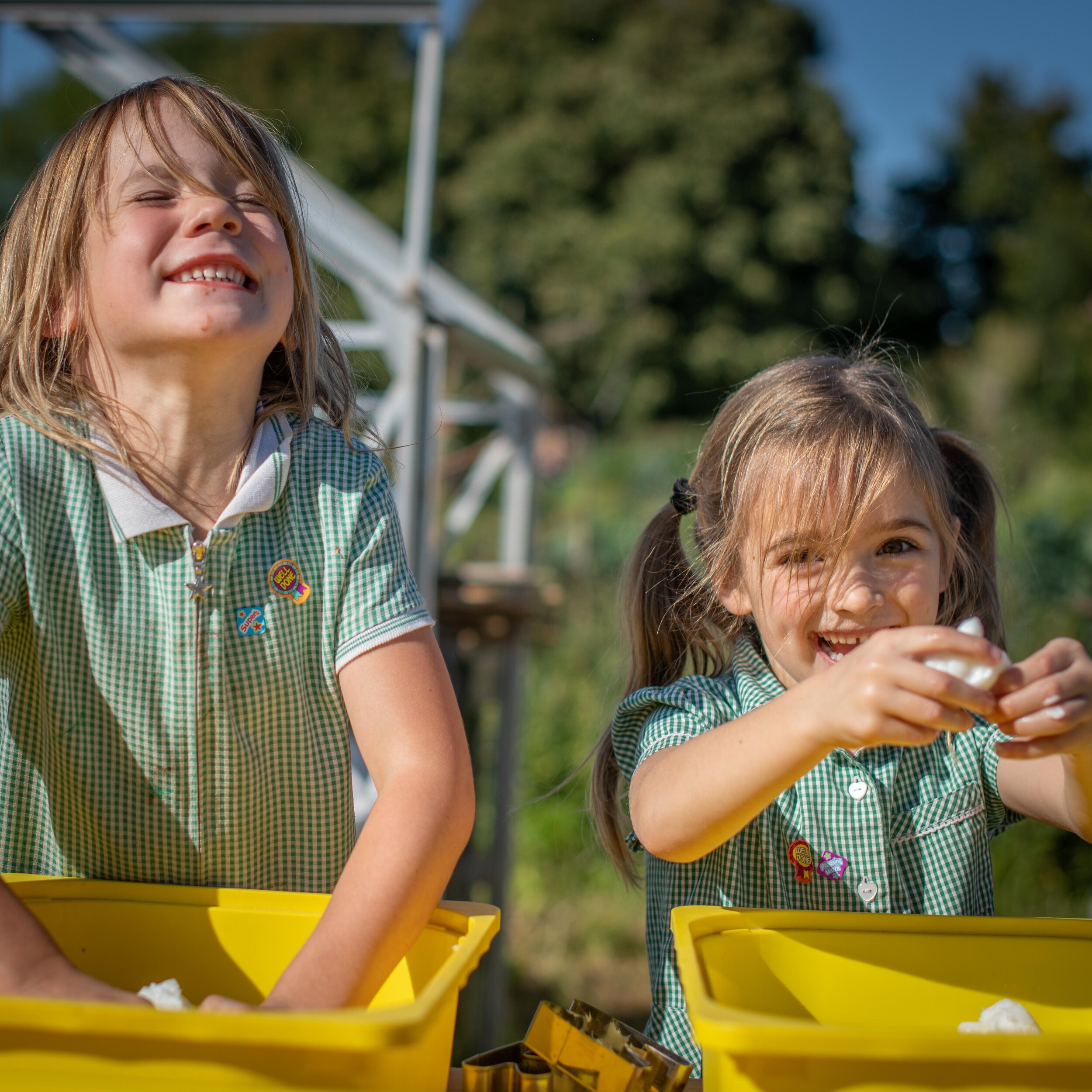
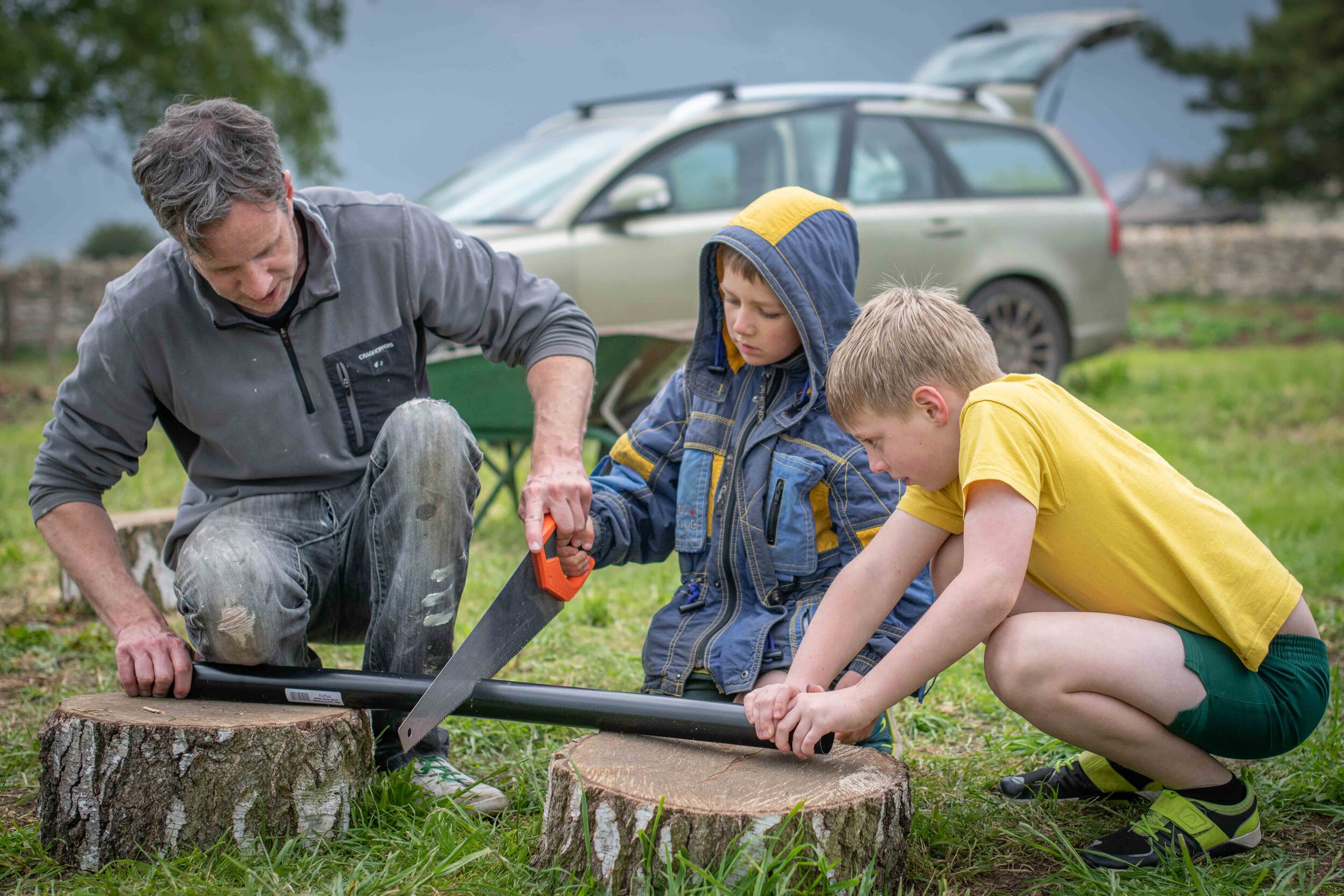
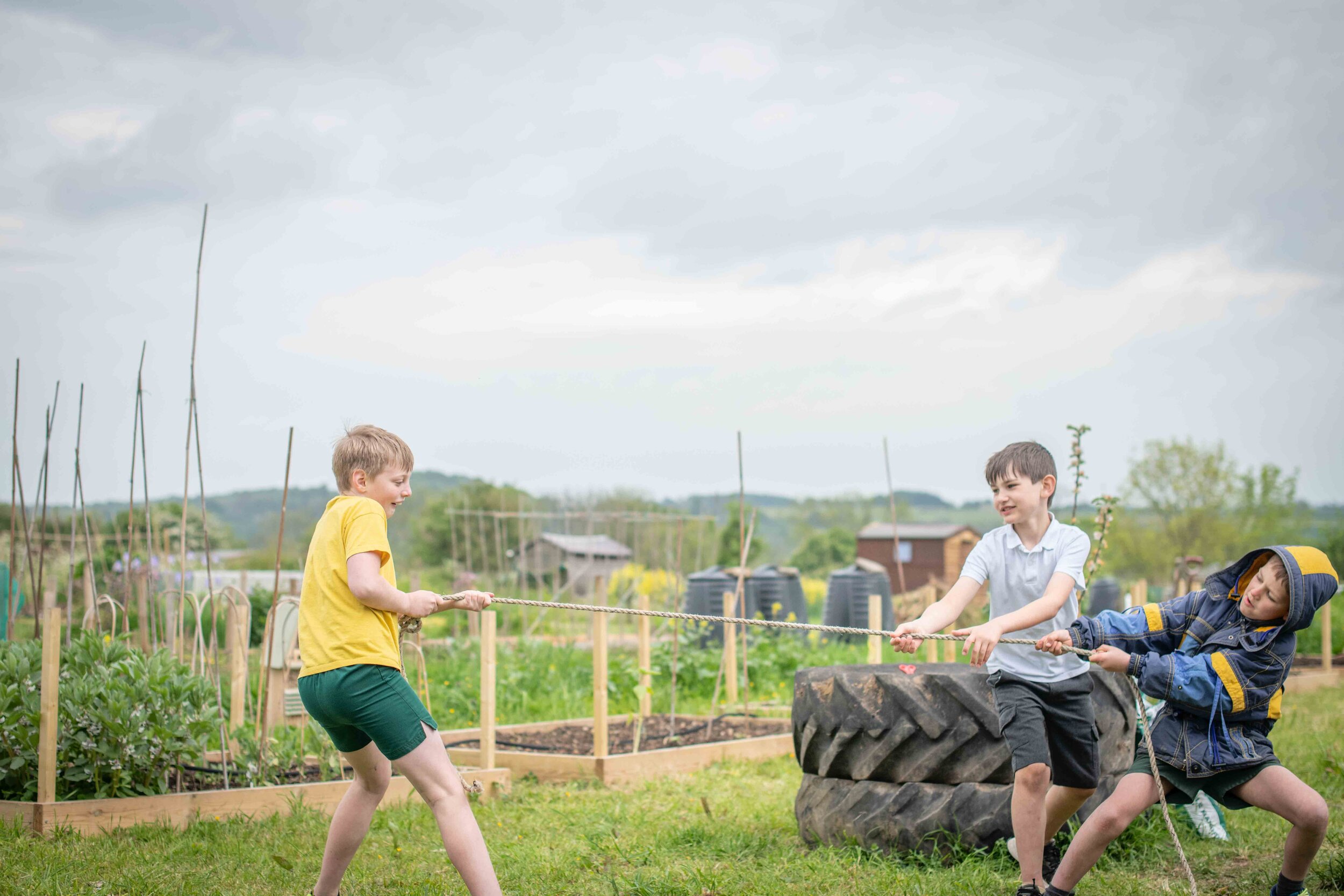
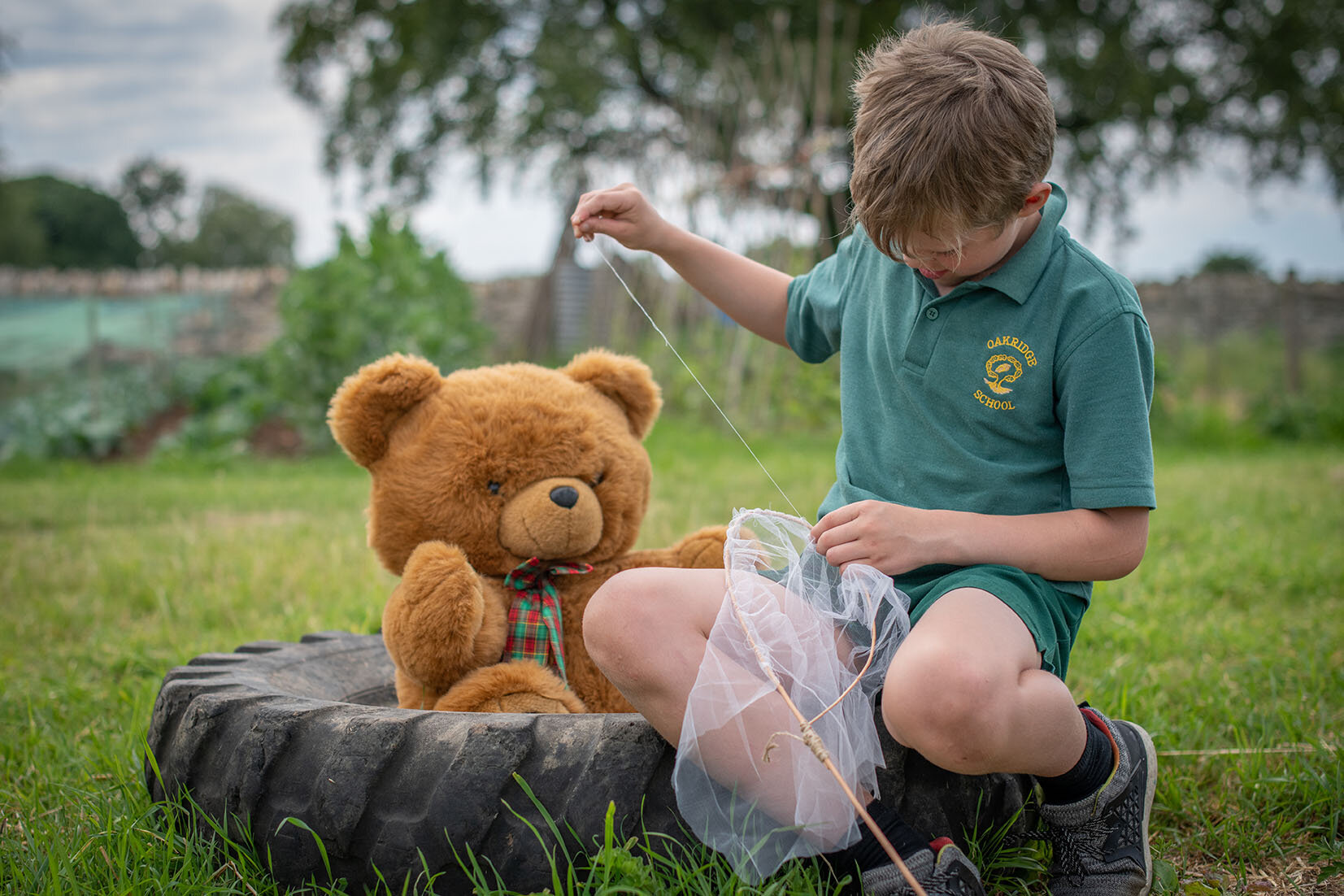
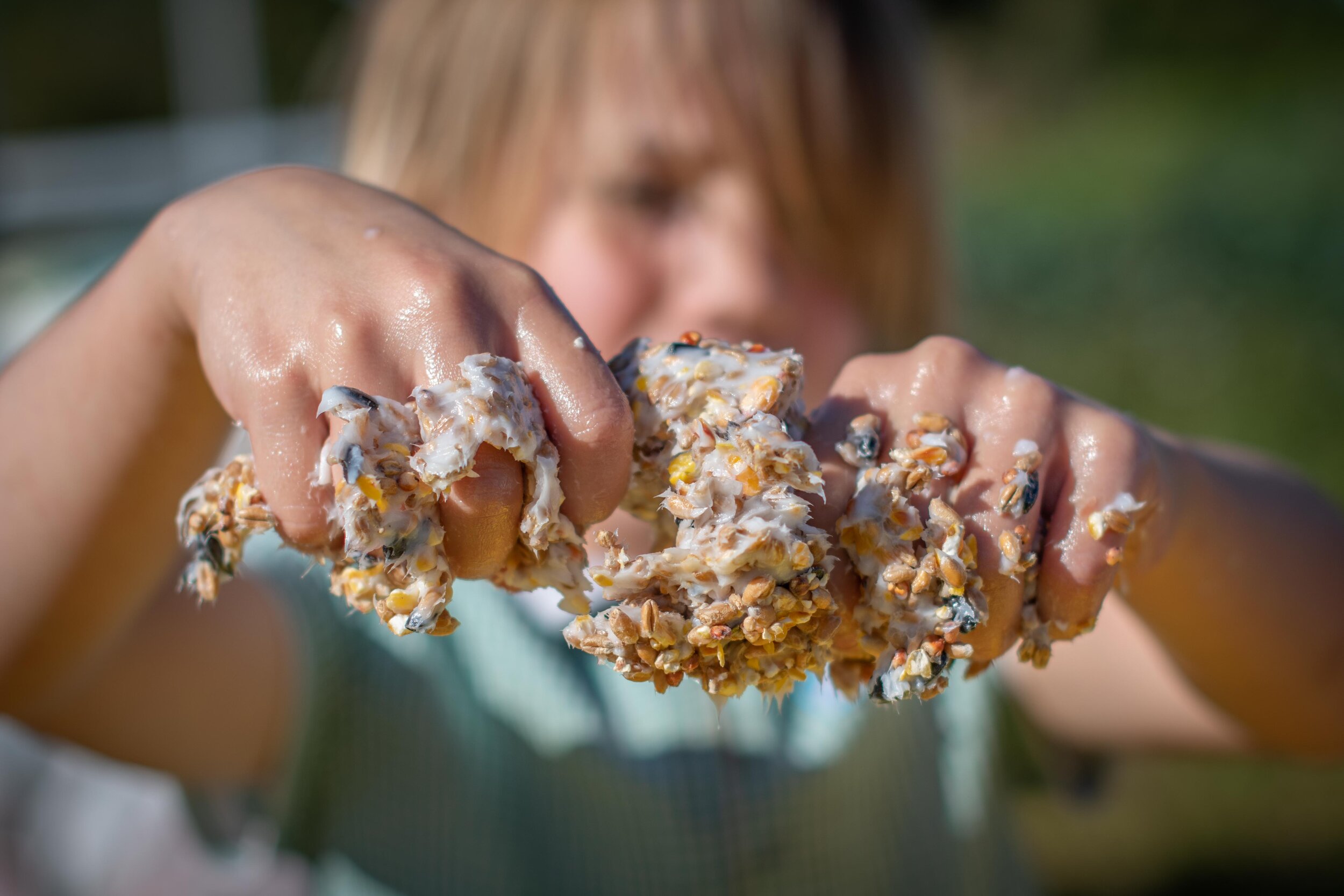
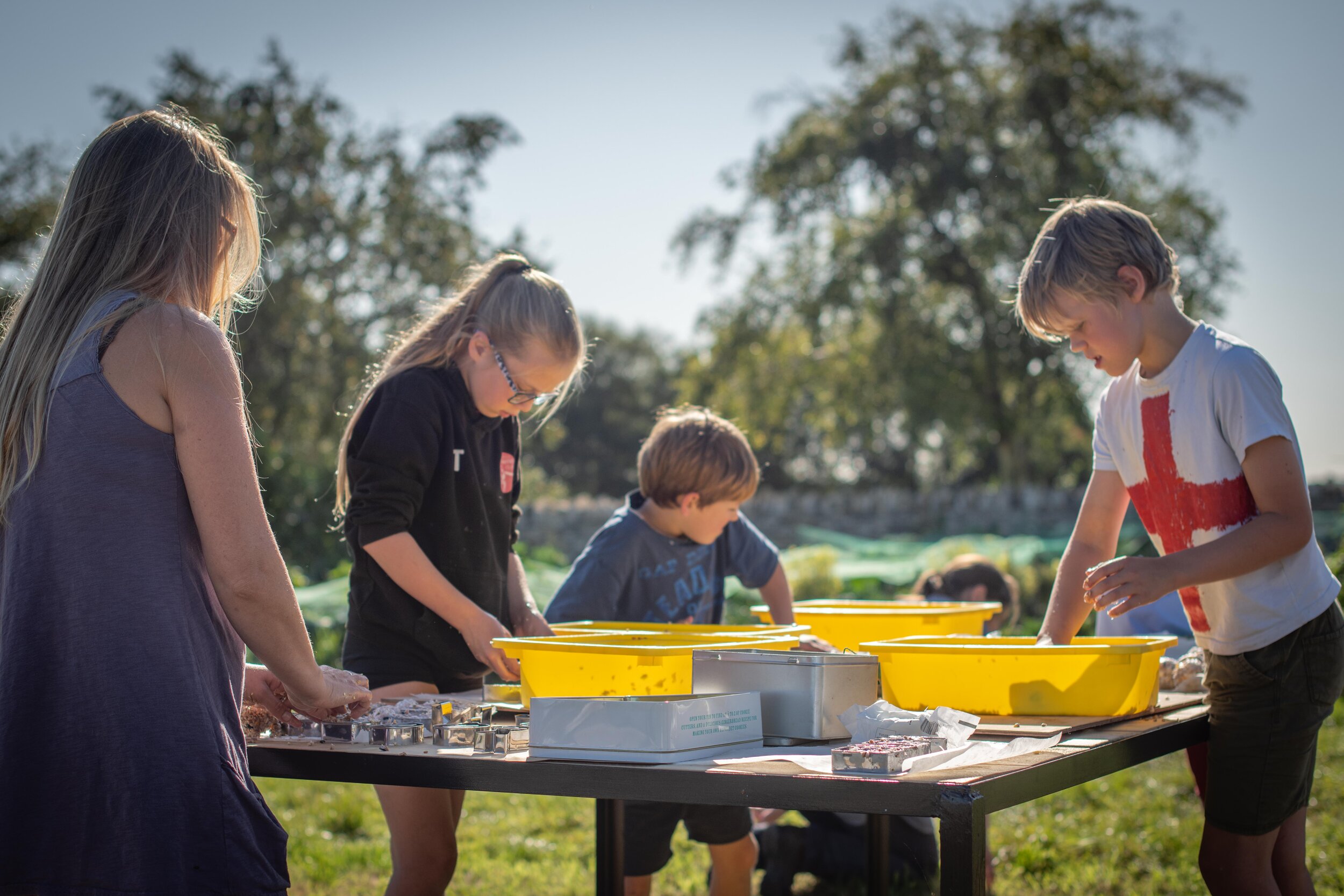
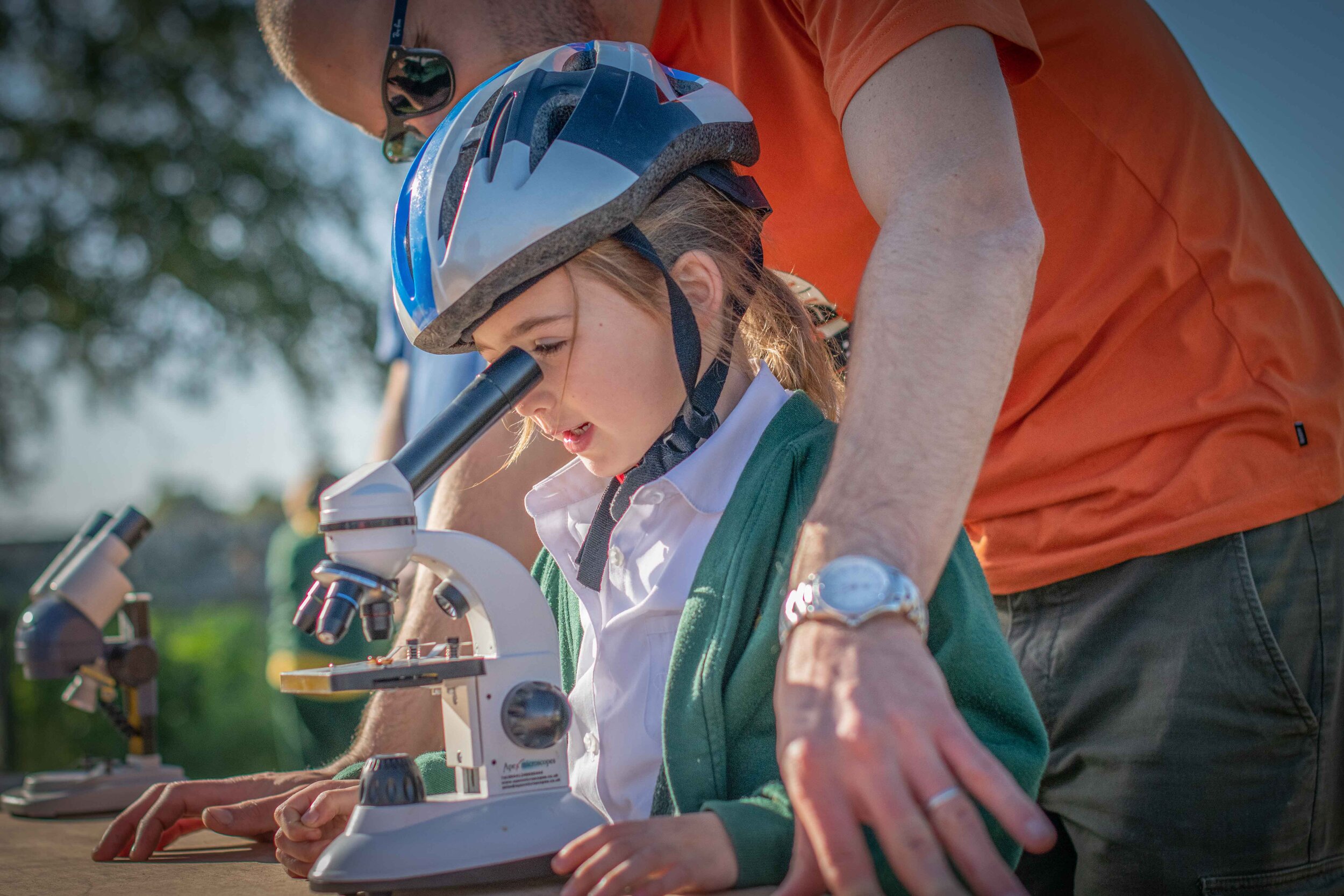
Forest School
All of our children are lucky enough to enjoy regular days out at Forest School. Forest School is about spending time outside, getting muddy, learning about the environment and, most importantly, having lots of fun.
Copsegrove Farm
Forest School and other activities are held at Copsegrove Farm in Bisley, near Stroud.
Copsegrove Farm is a family-run livestock farm of about 300 acres in size, producing and selling its own beef, pork and lamb locally and farming in an environmentally friendly way. Animal welfare, together with maintenance and conservation of the variety of habitats present on the farm to encourage natural wildlife, are both at the forefront of its farming.
Kate Bankes, who has nearly ten years experience of running school visits to Copsegrove Farm, is an experienced qualified teacher with a PGCE in Secondary Science and Paediatric first aid training.
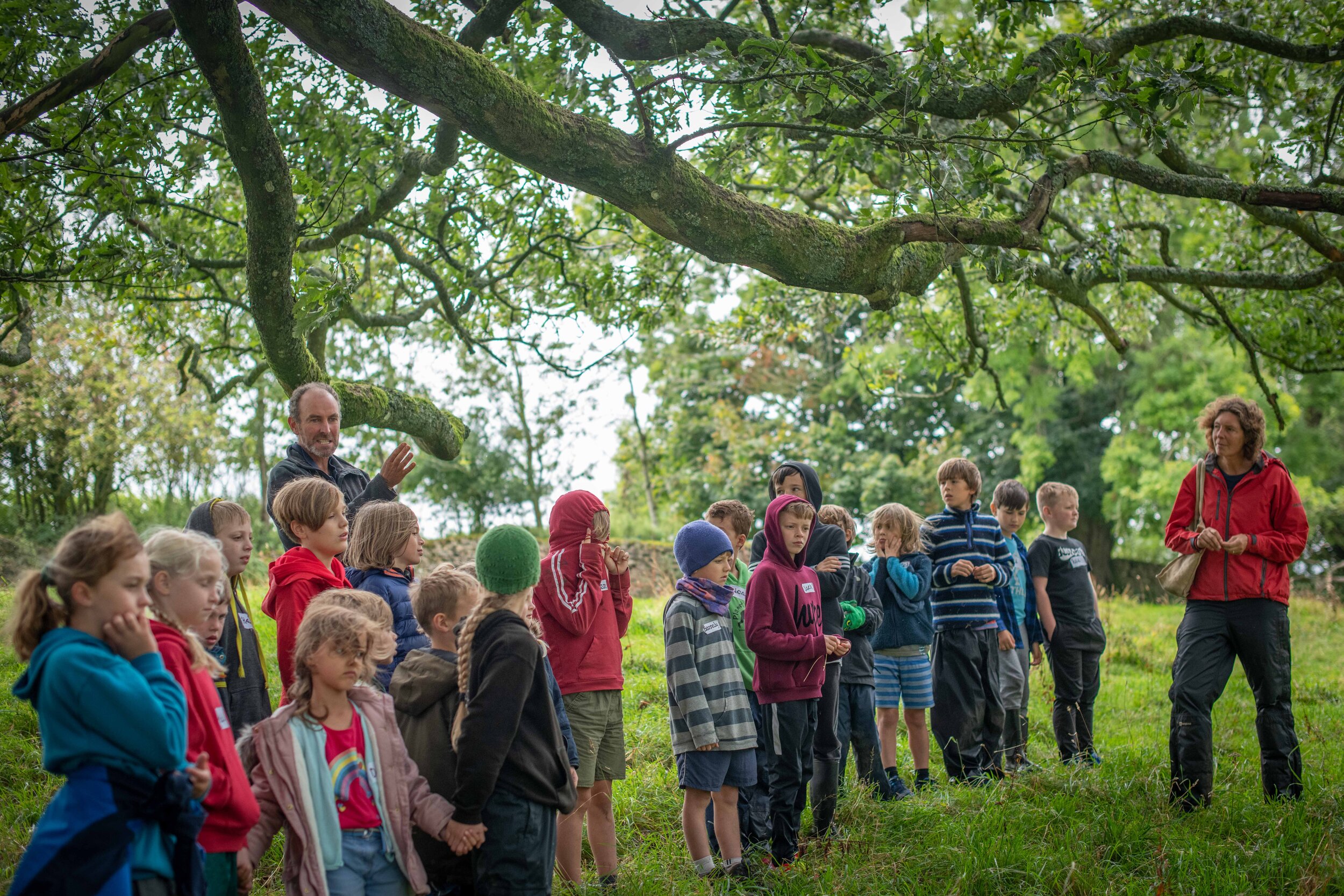
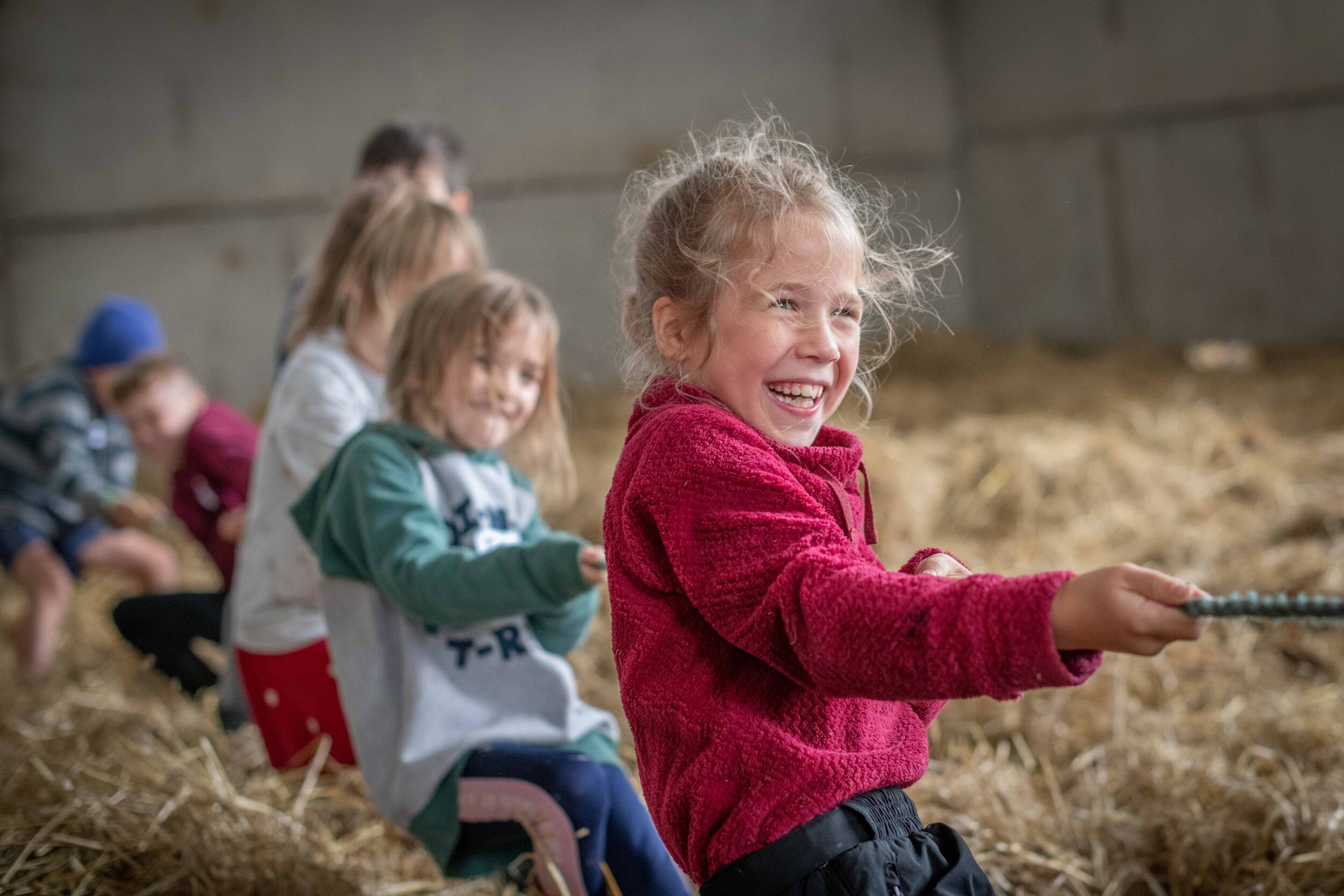
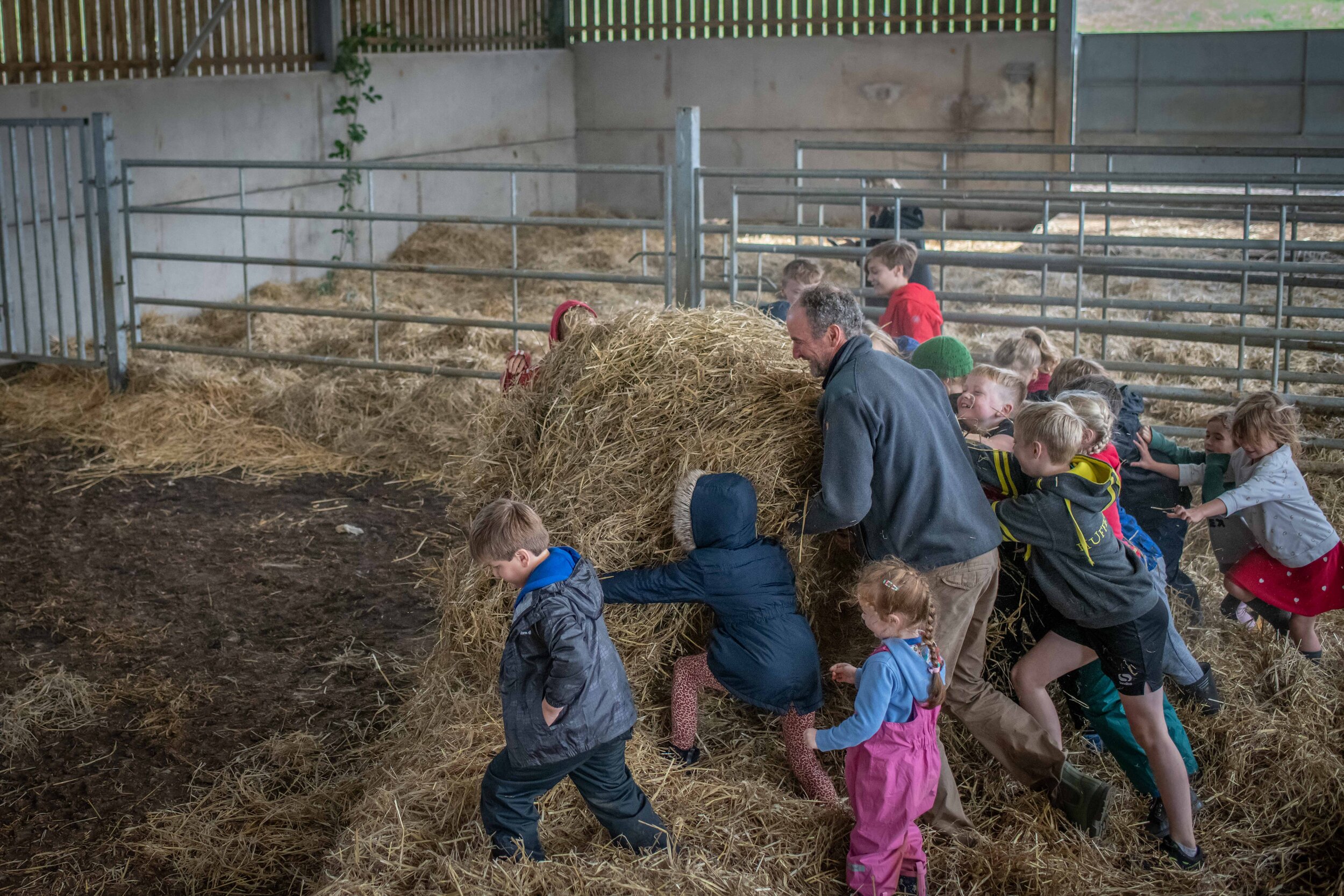
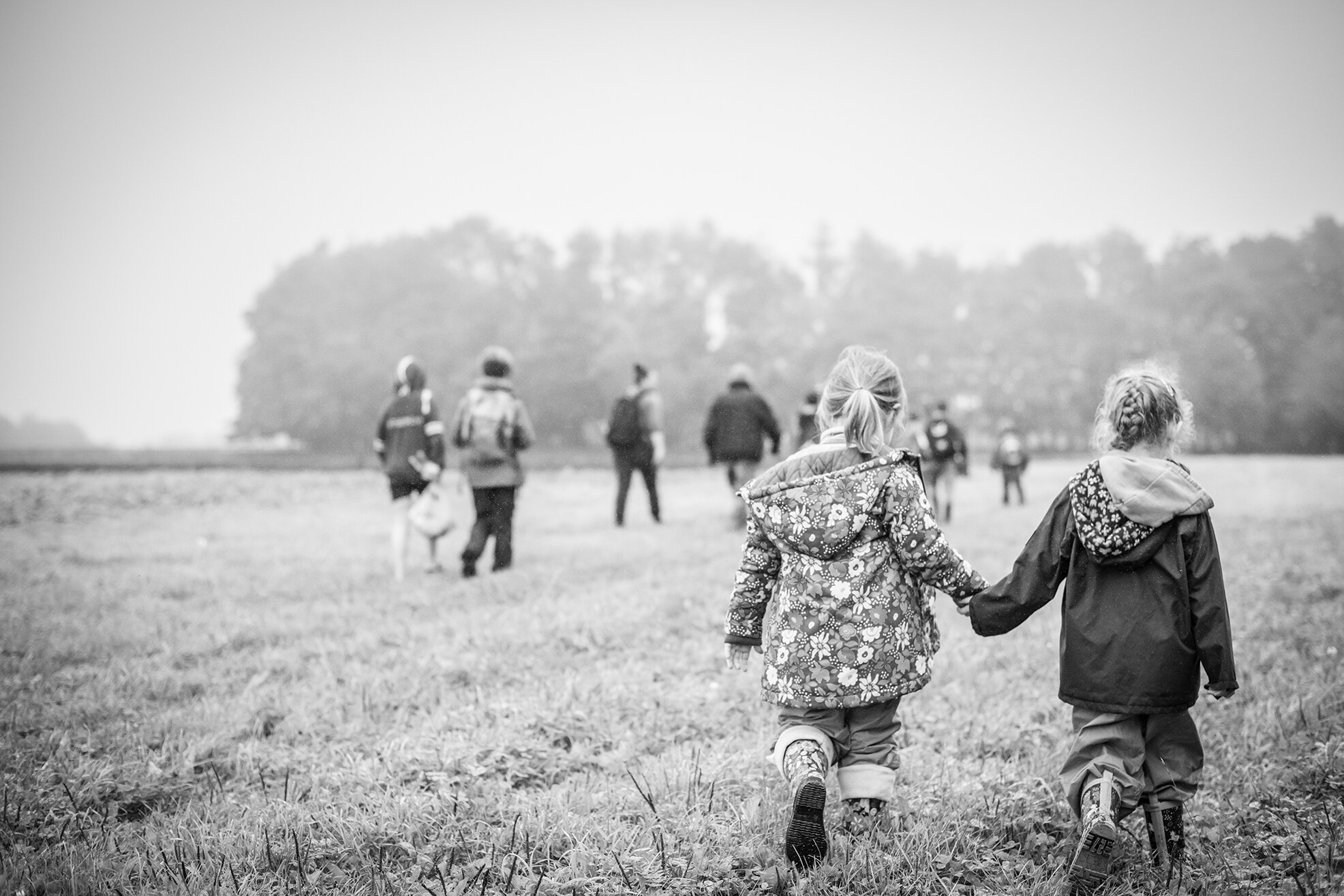
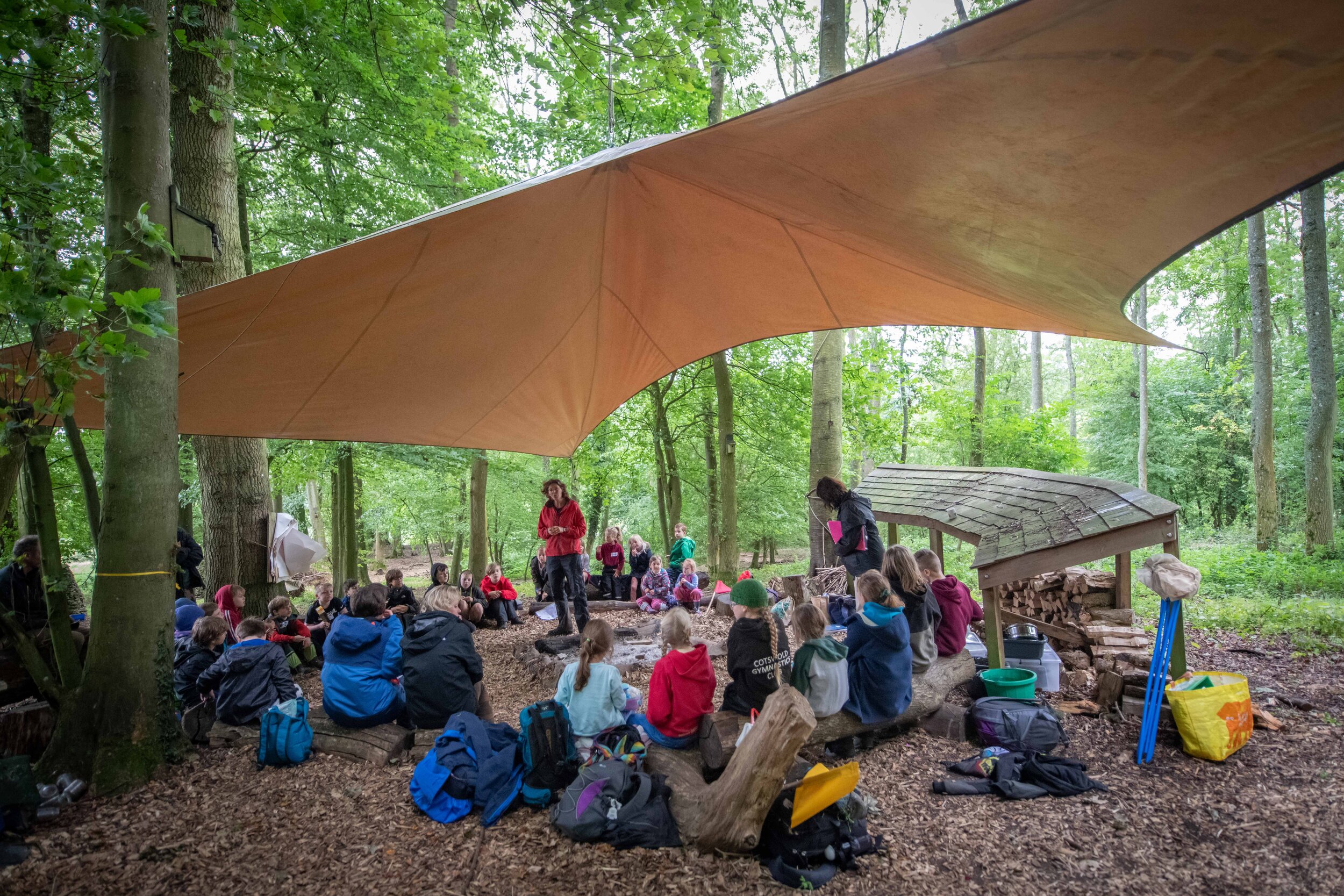
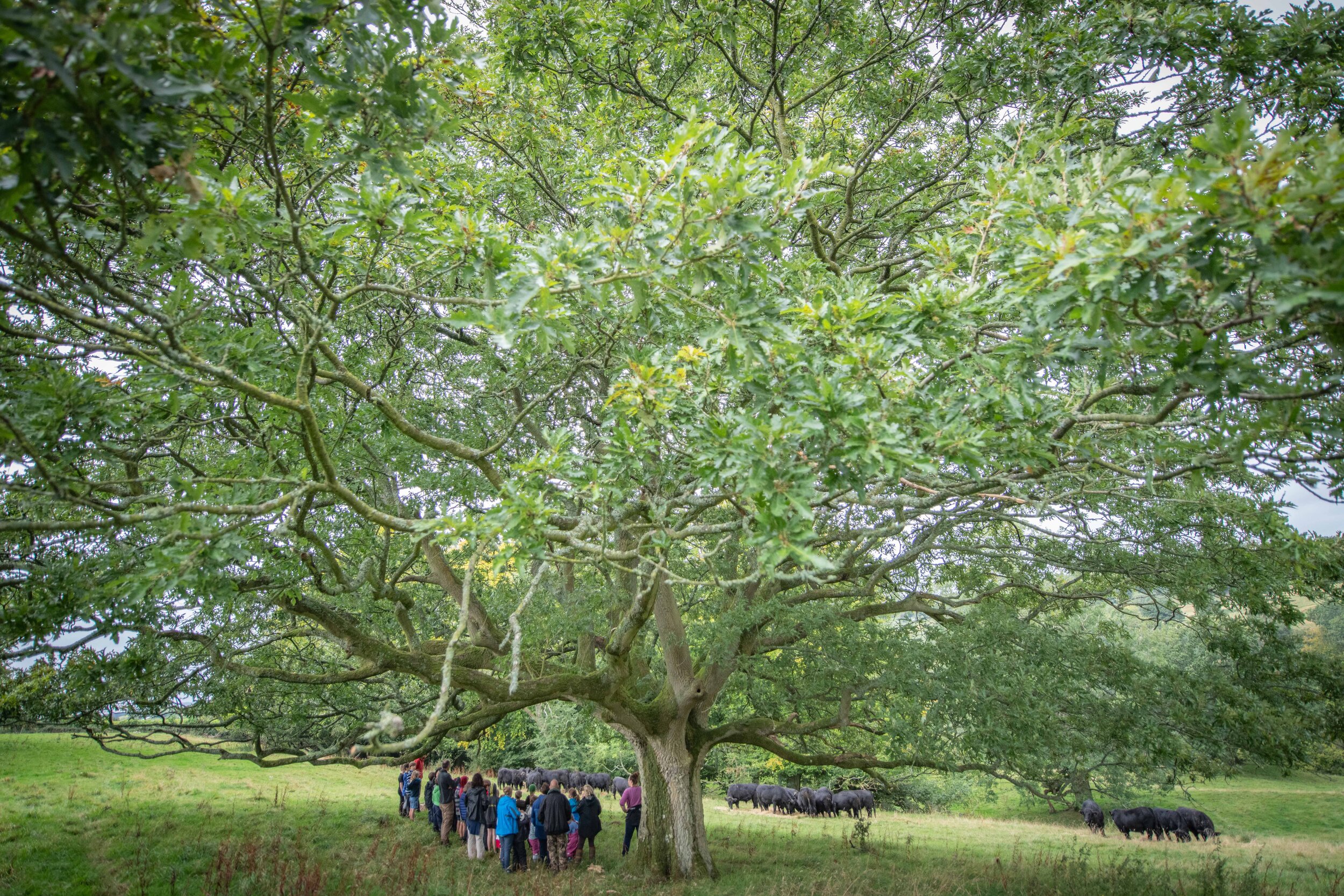
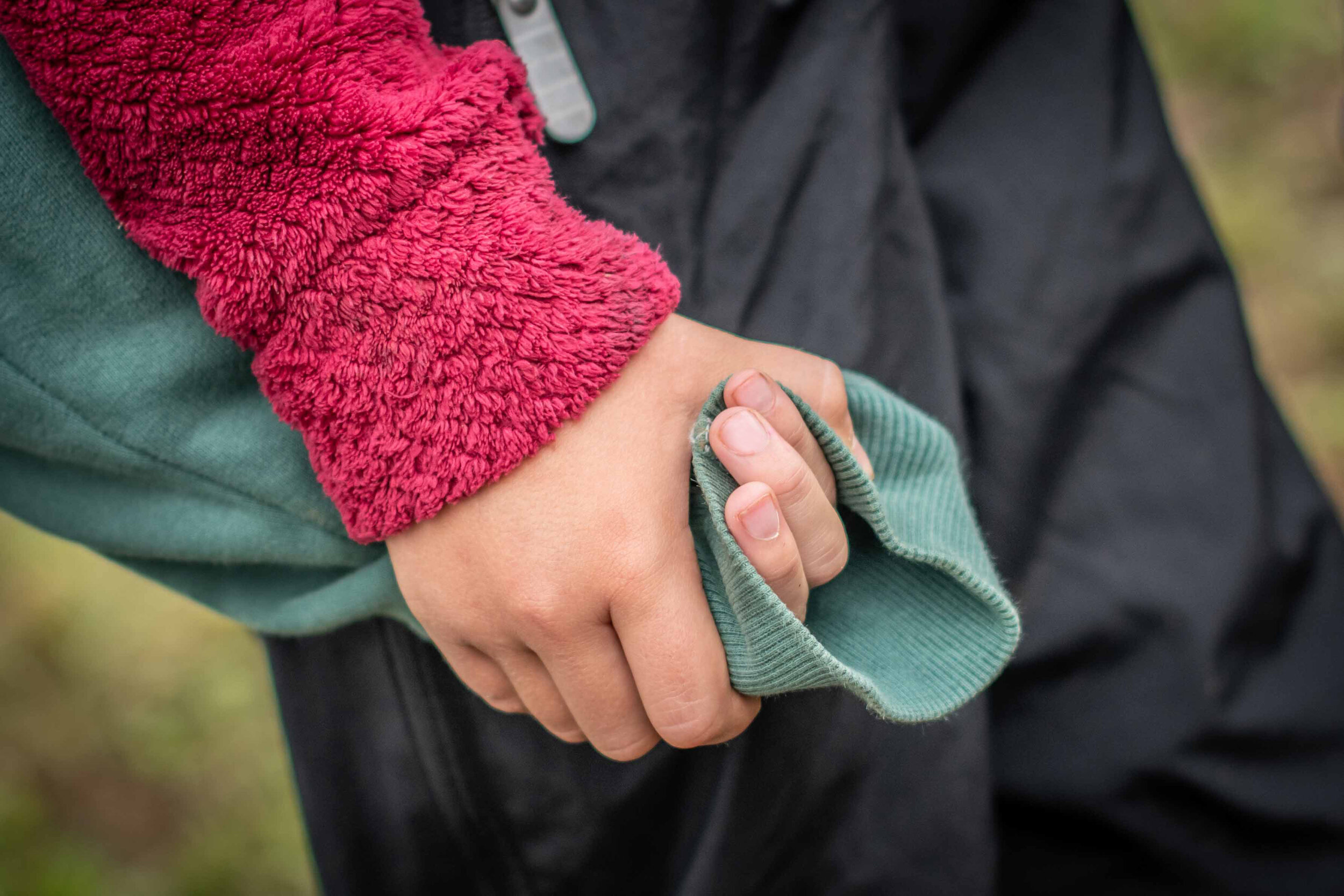
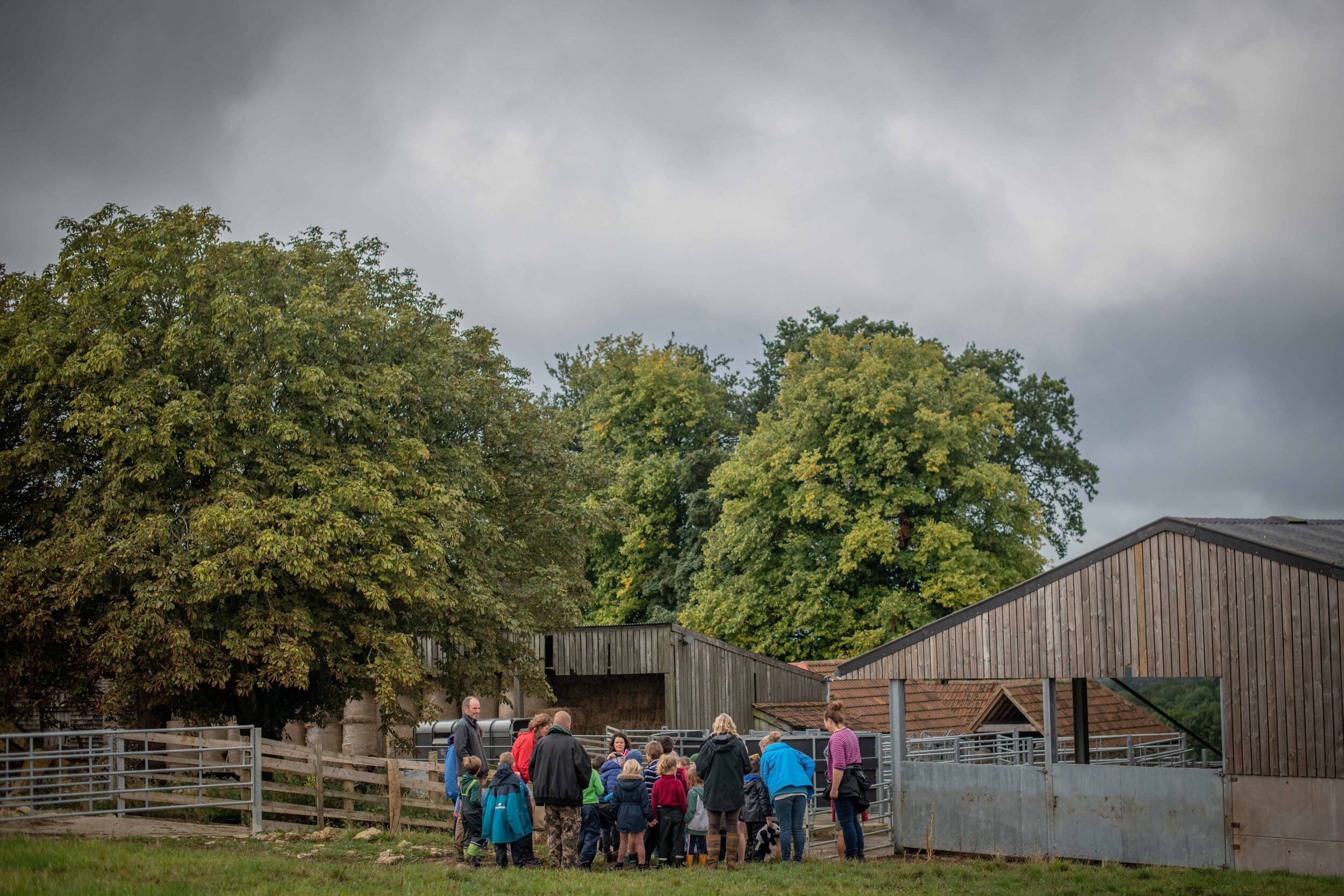
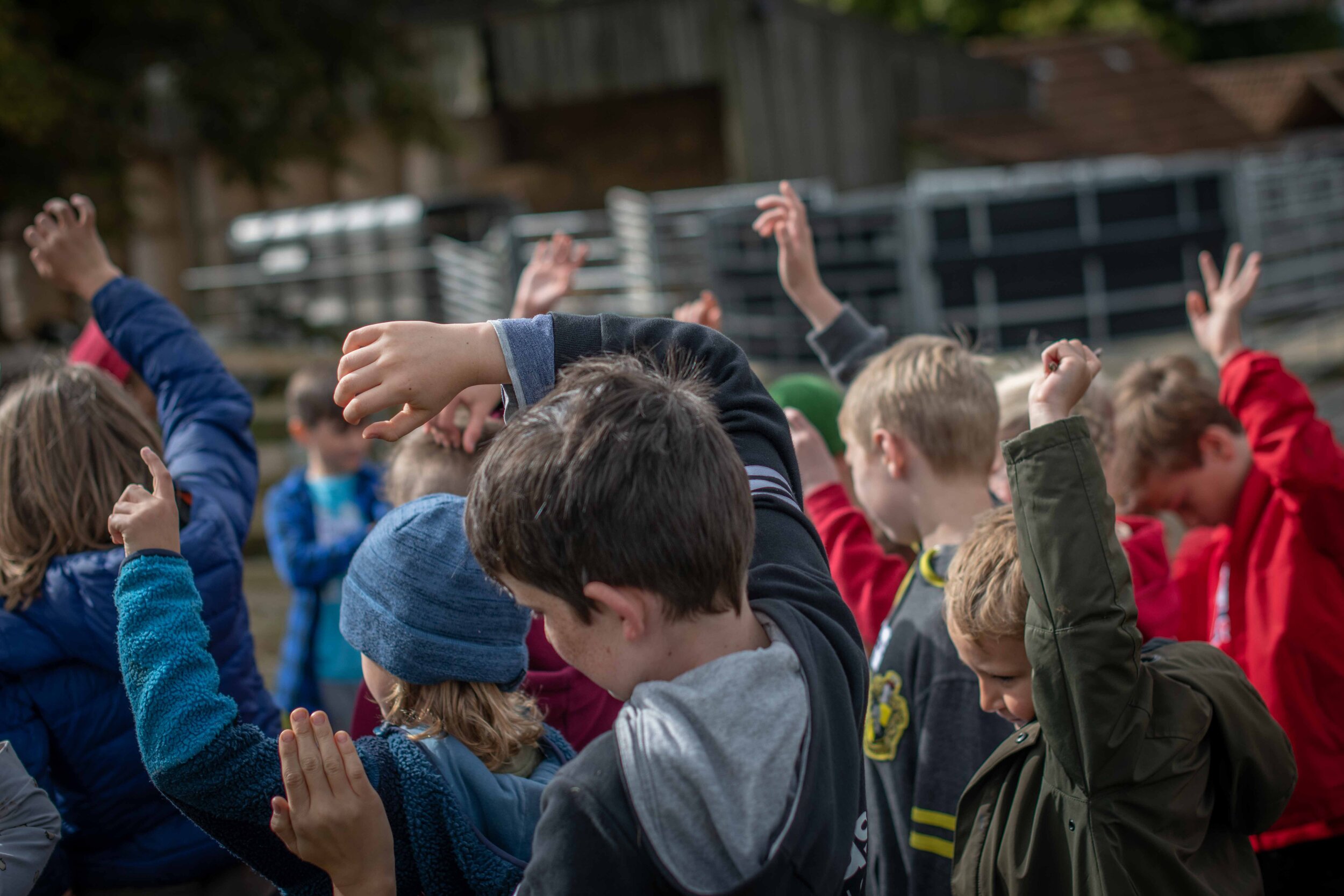
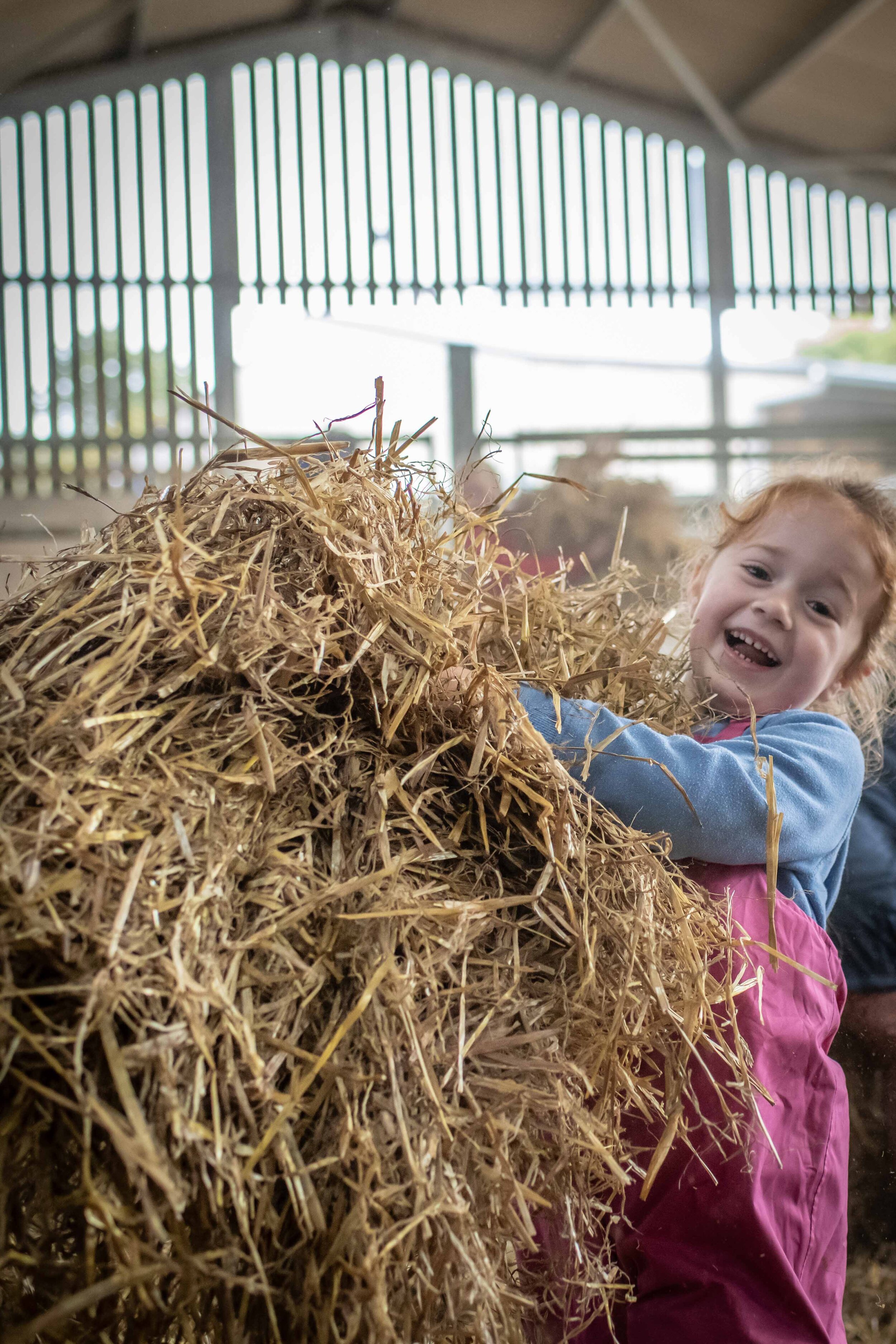
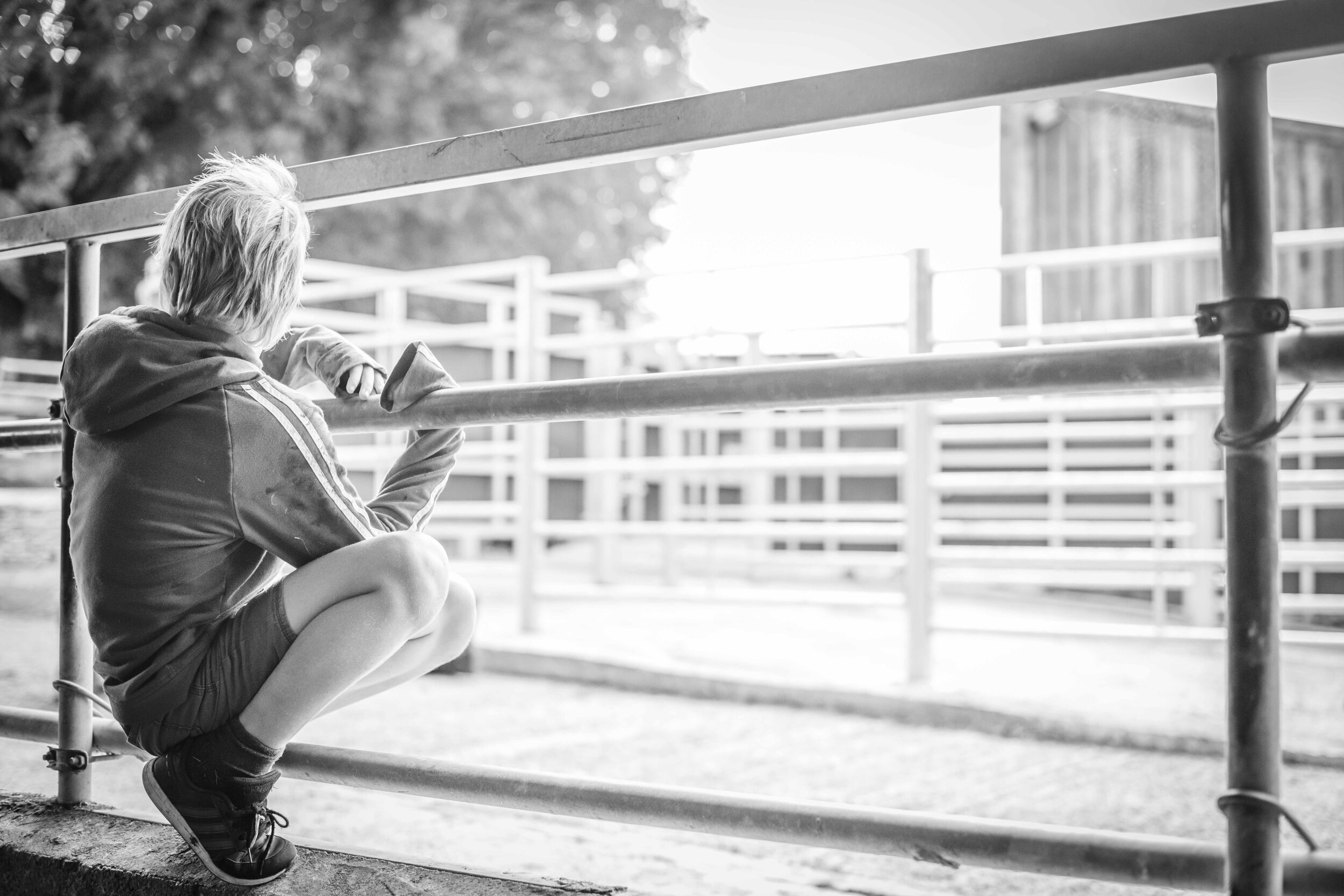
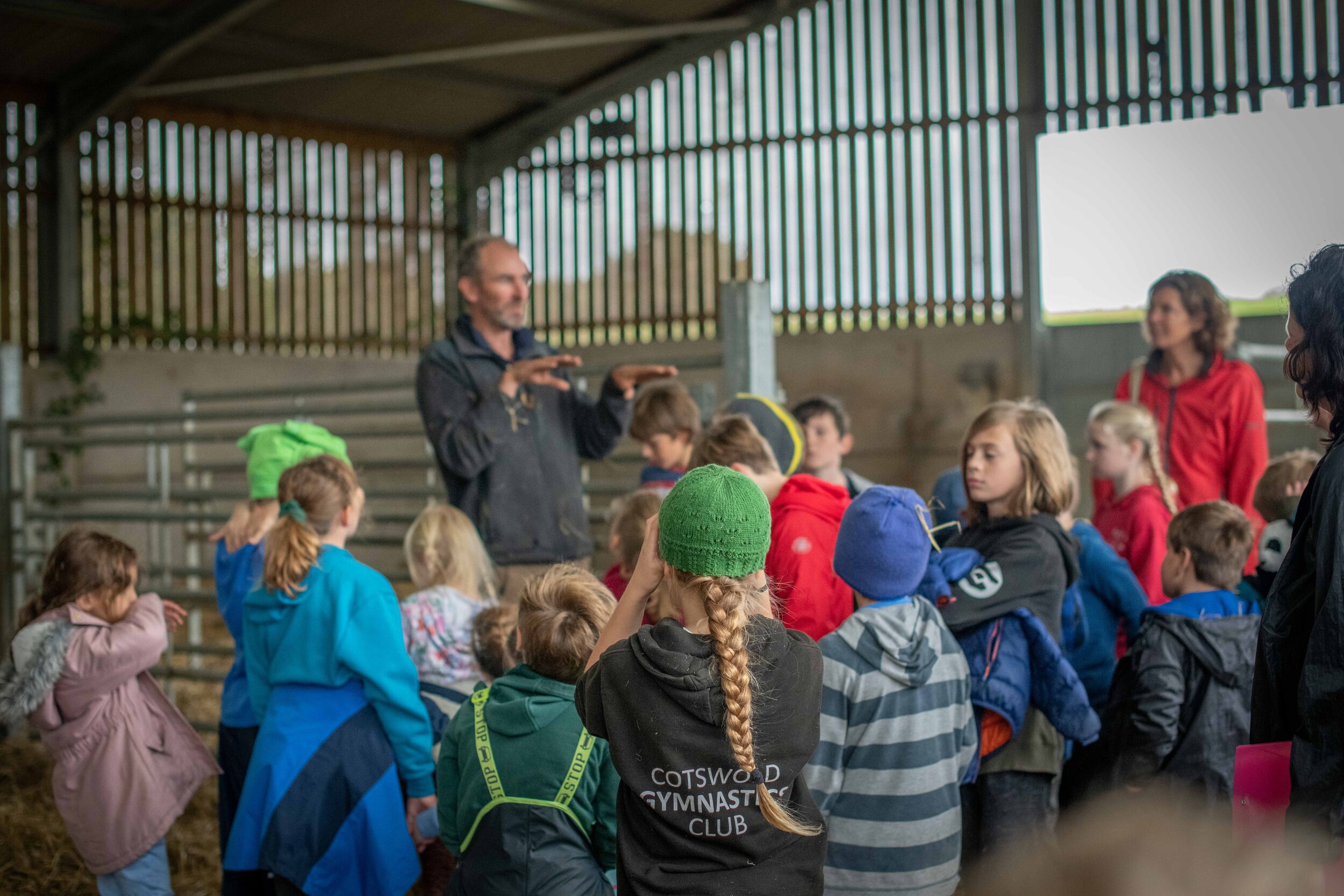
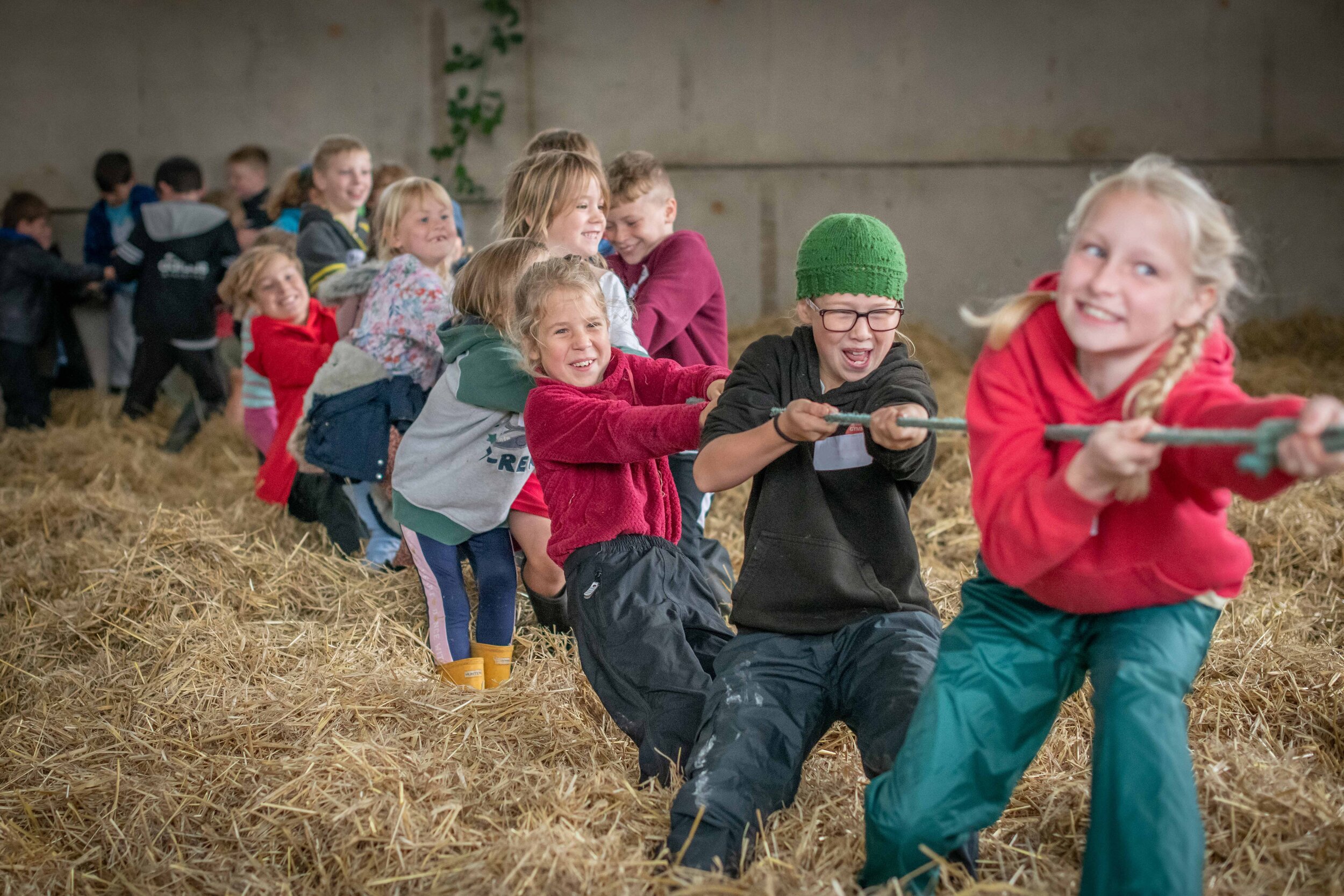
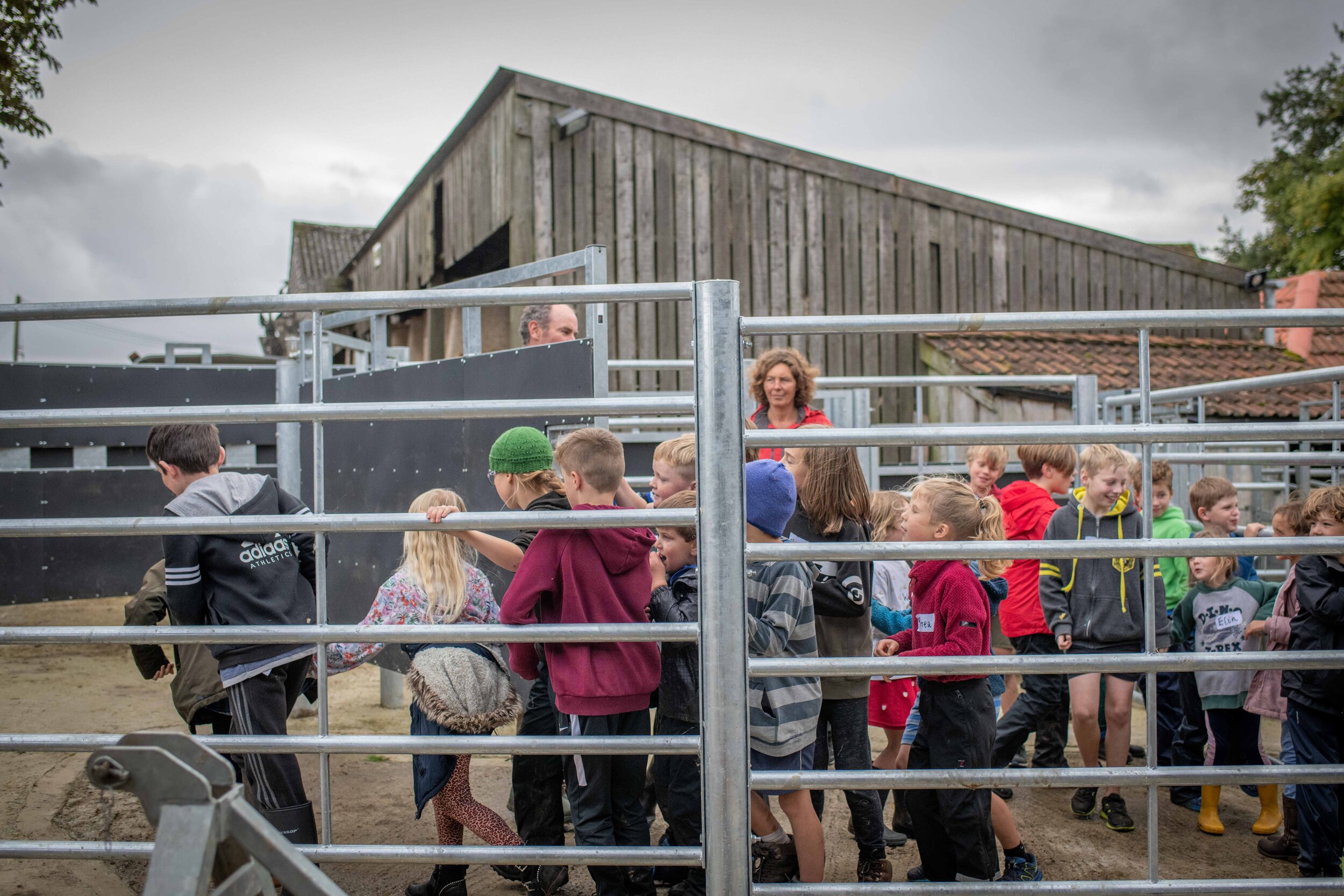

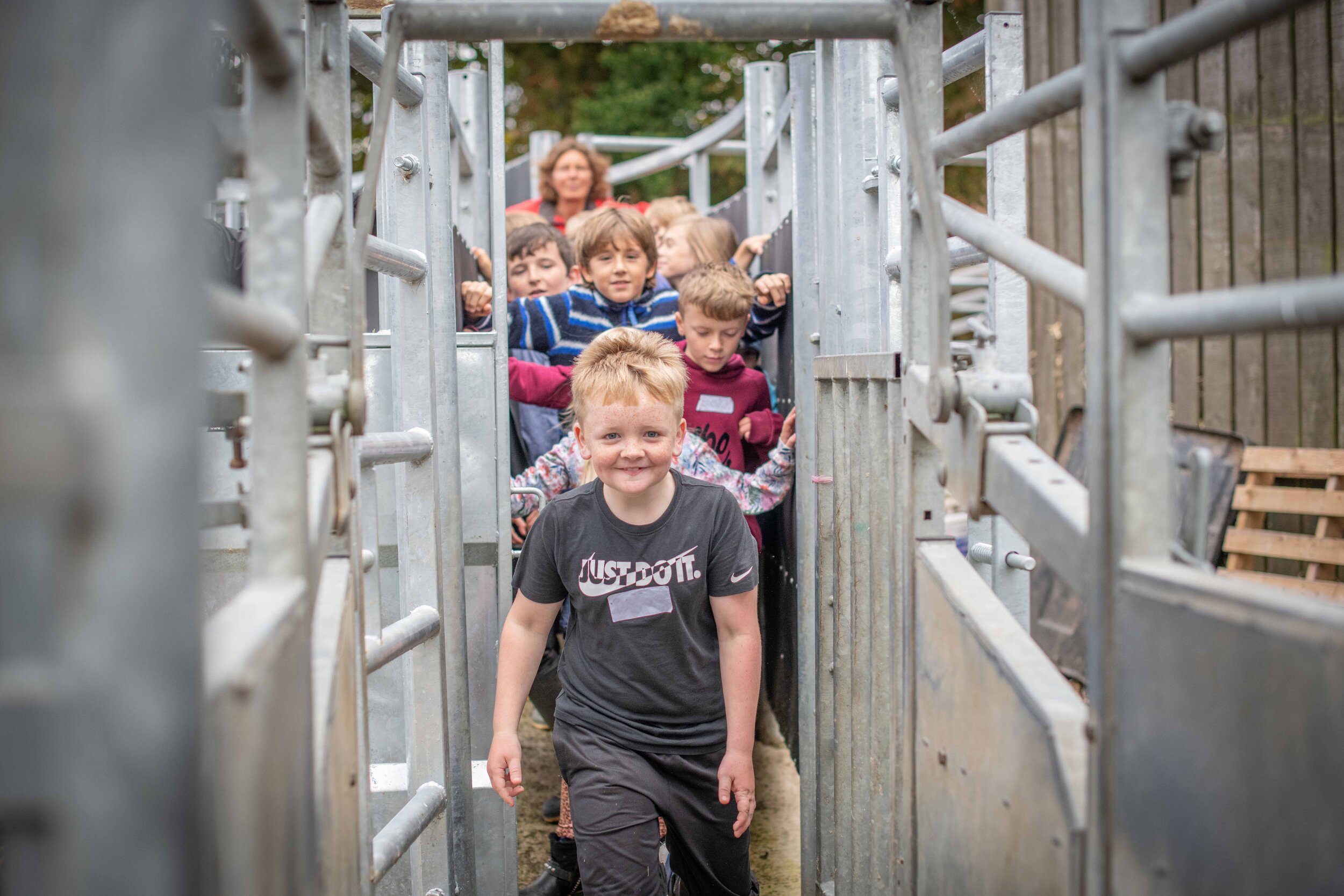
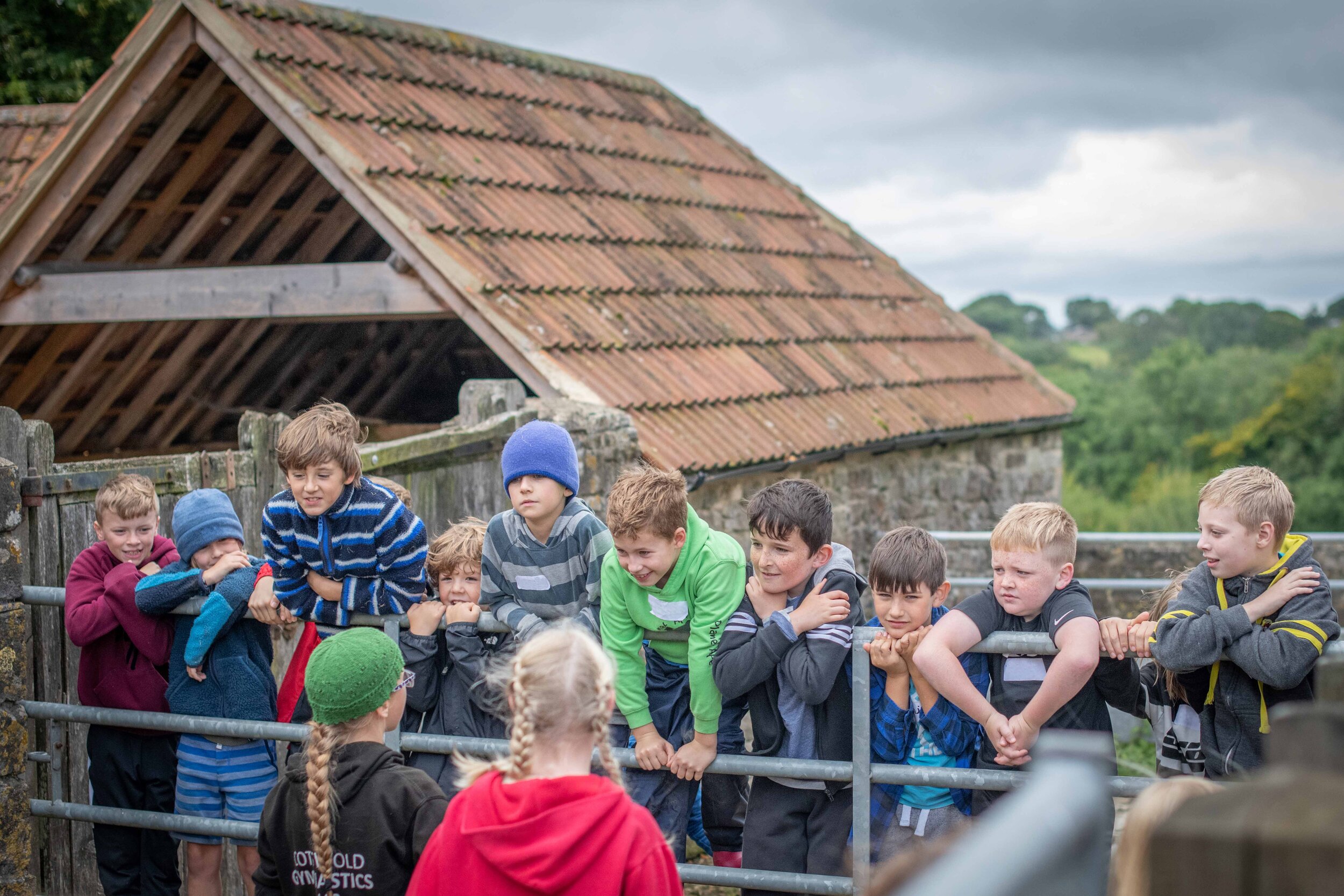

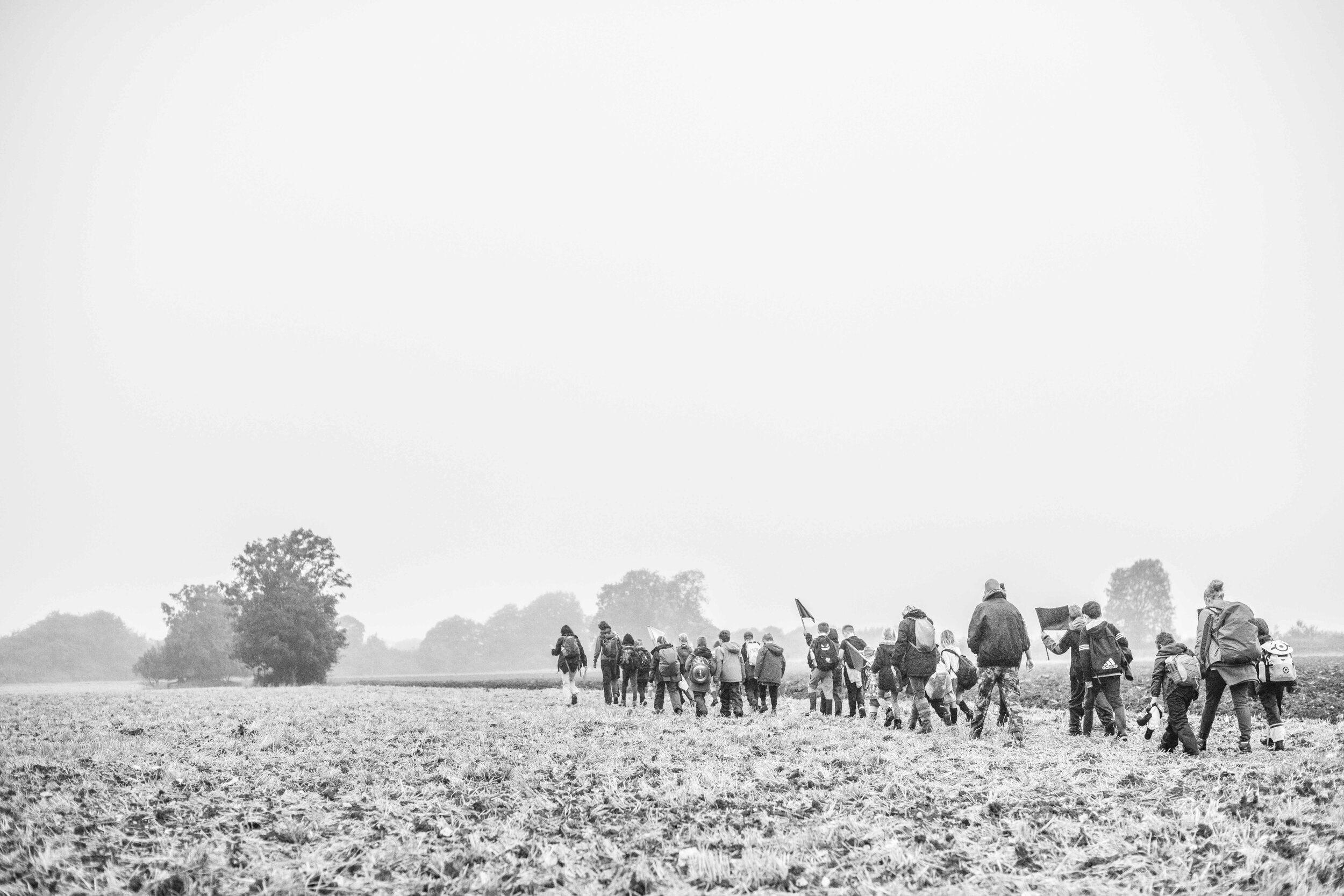
Strawberry Banks
Right on our doorstep is Strawberry Banks, a nature reserve and Site of Special Scientific Interest (SSSI). The banks are thought to have once been used to grow strawberries, hence the name.
Strawberry Banks adjoins the Three Groves Wood nature reserve and lies on the west-facing slopes of a small valley just a few hundred yards from the school. Strawberry Banks and Three Groves Wood are part of a group of nature reserves in Stroud's Golden Valley.
The site supports a large population of the Marsh fritillary butterfly and it is also one of the few sites in Britain at which the Oil beetle can be found.
